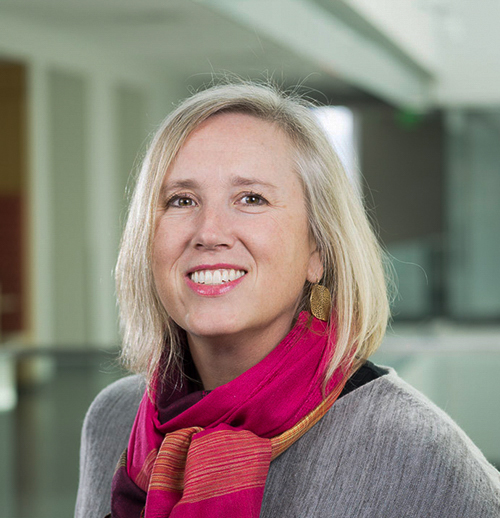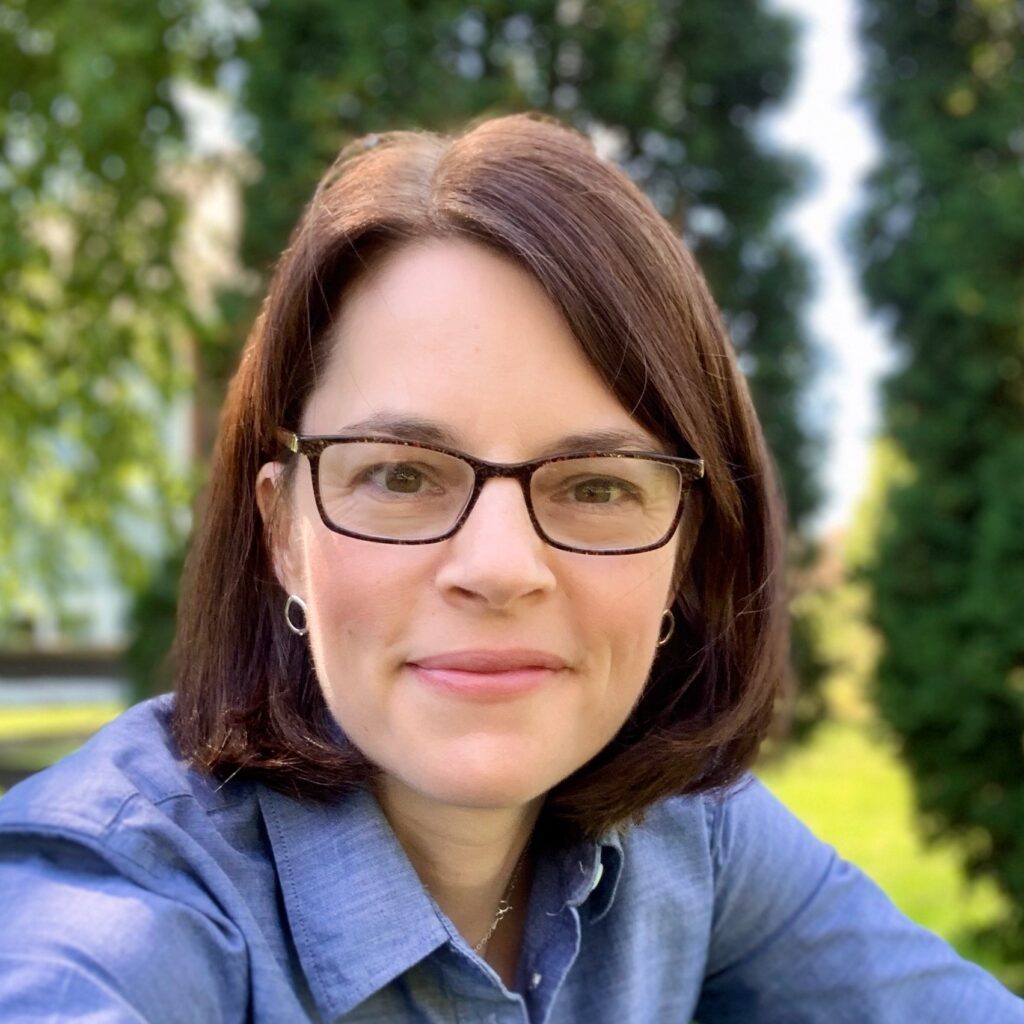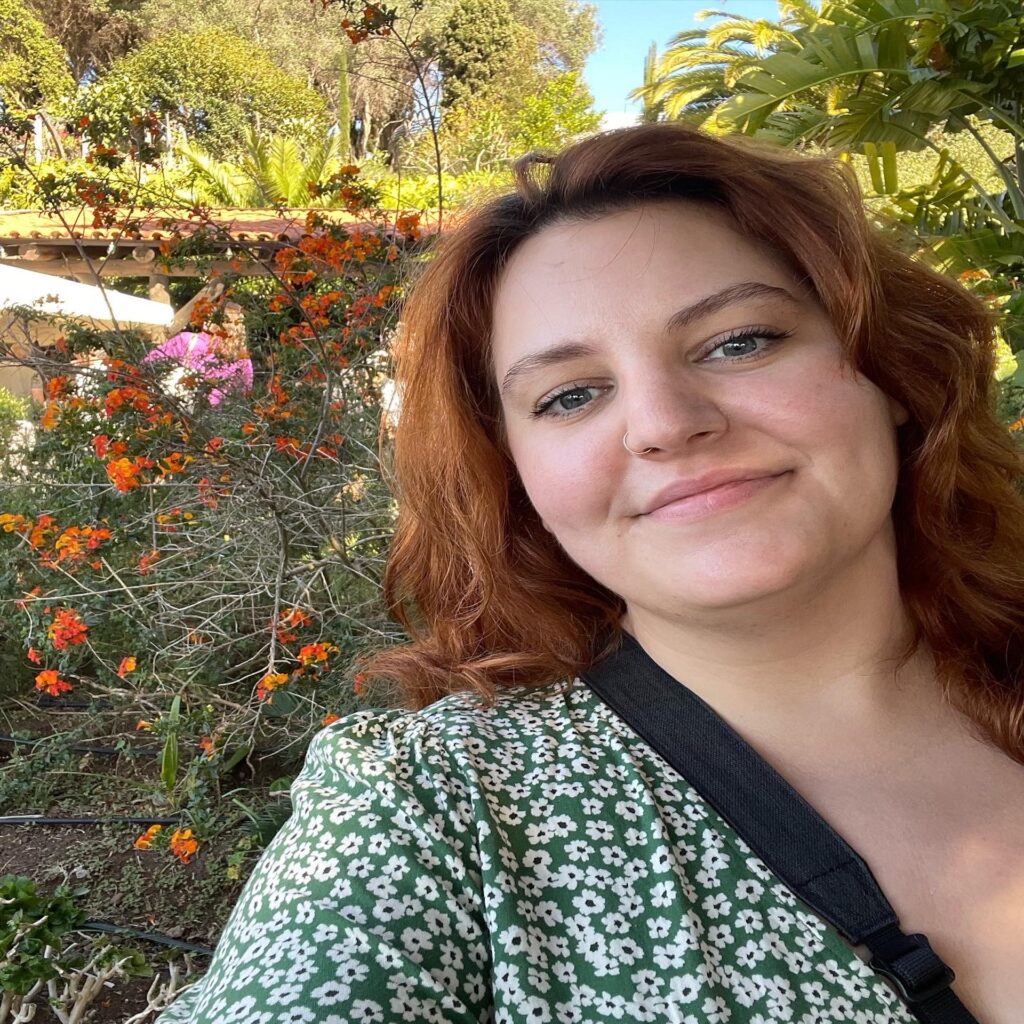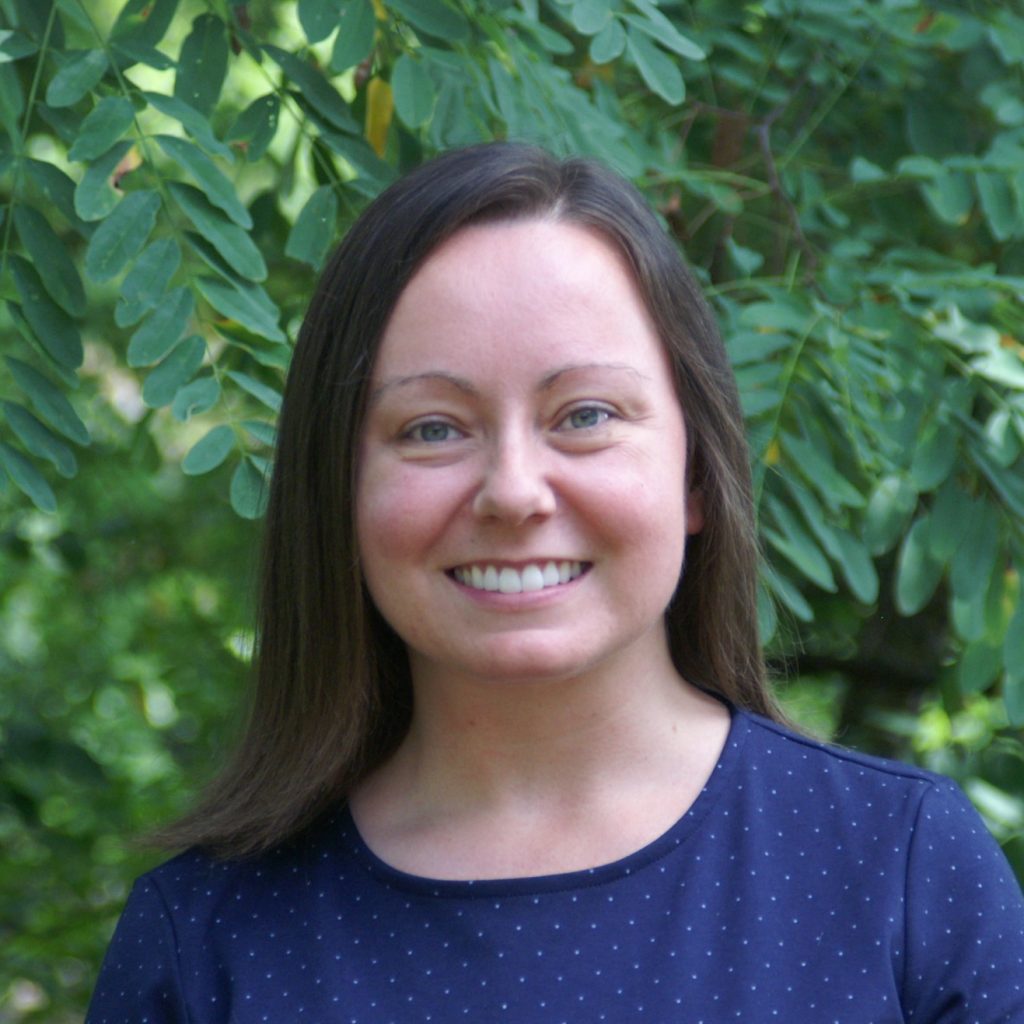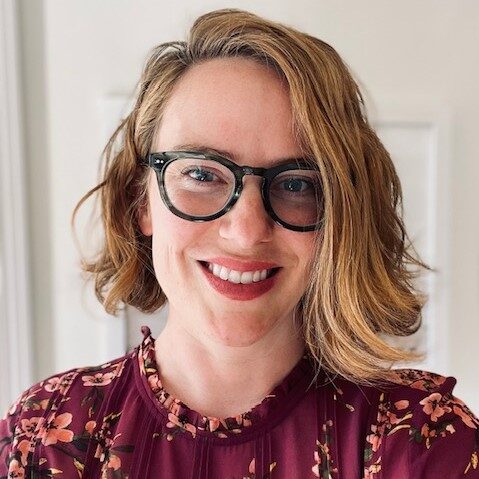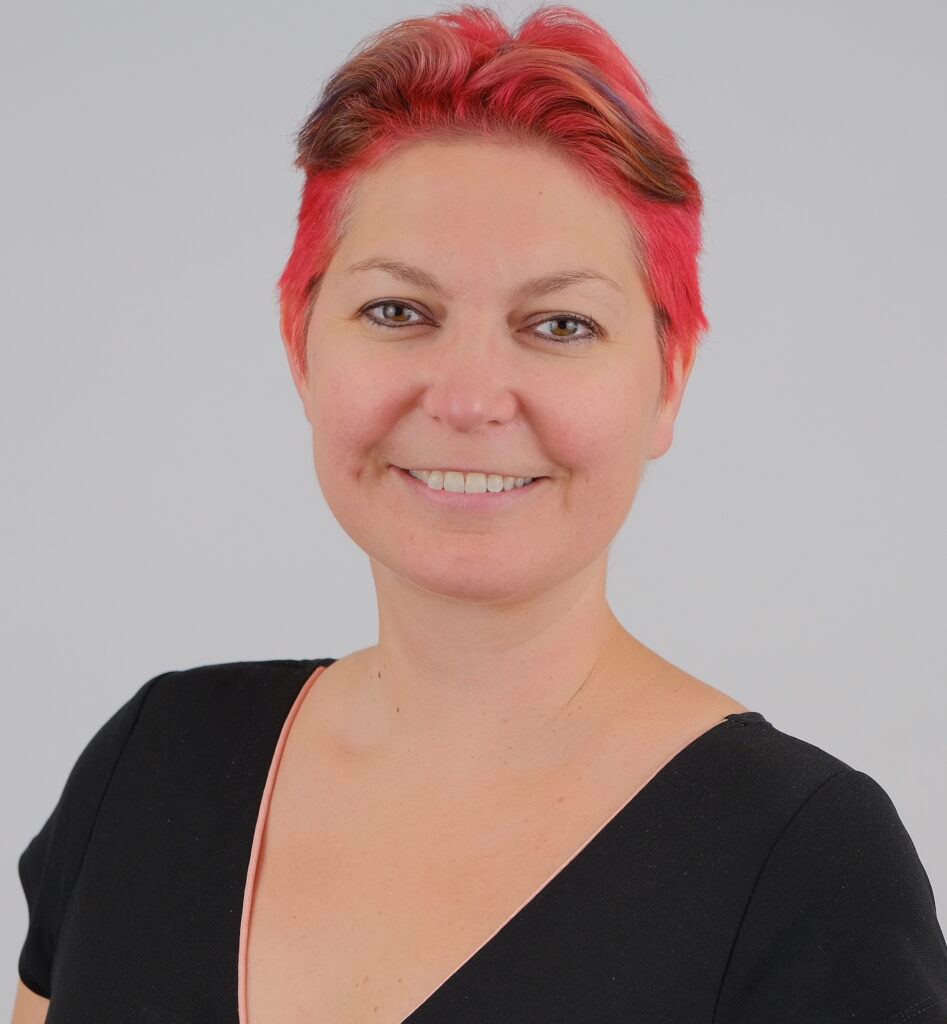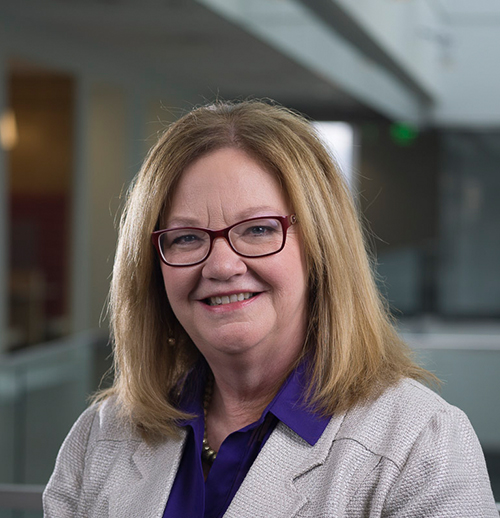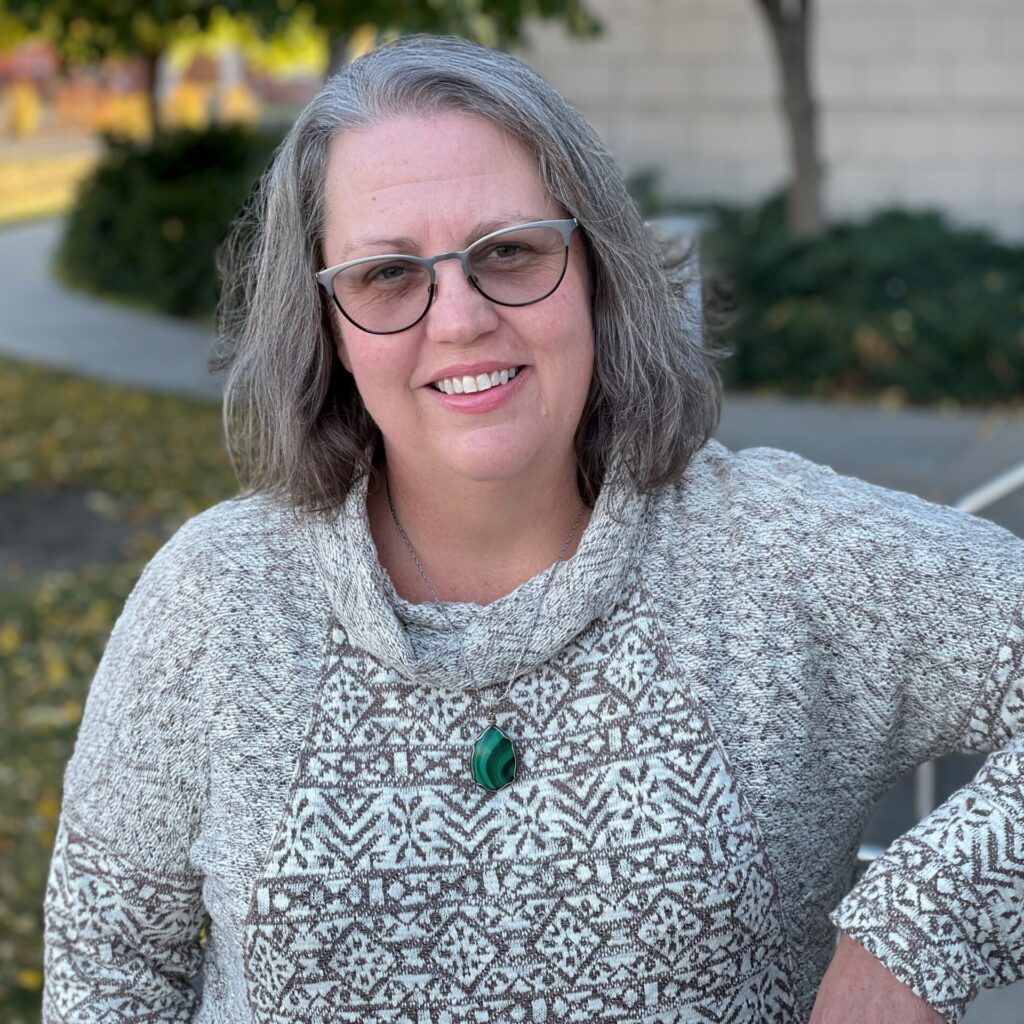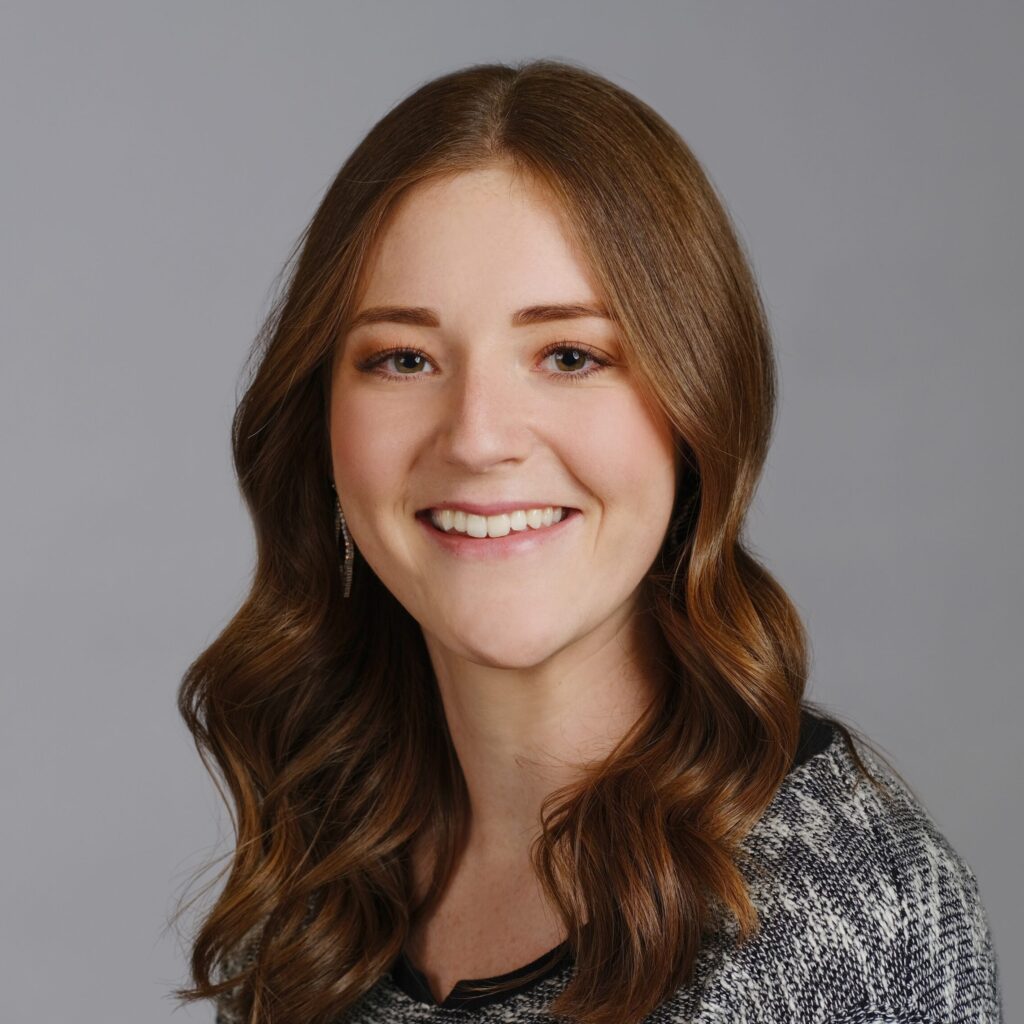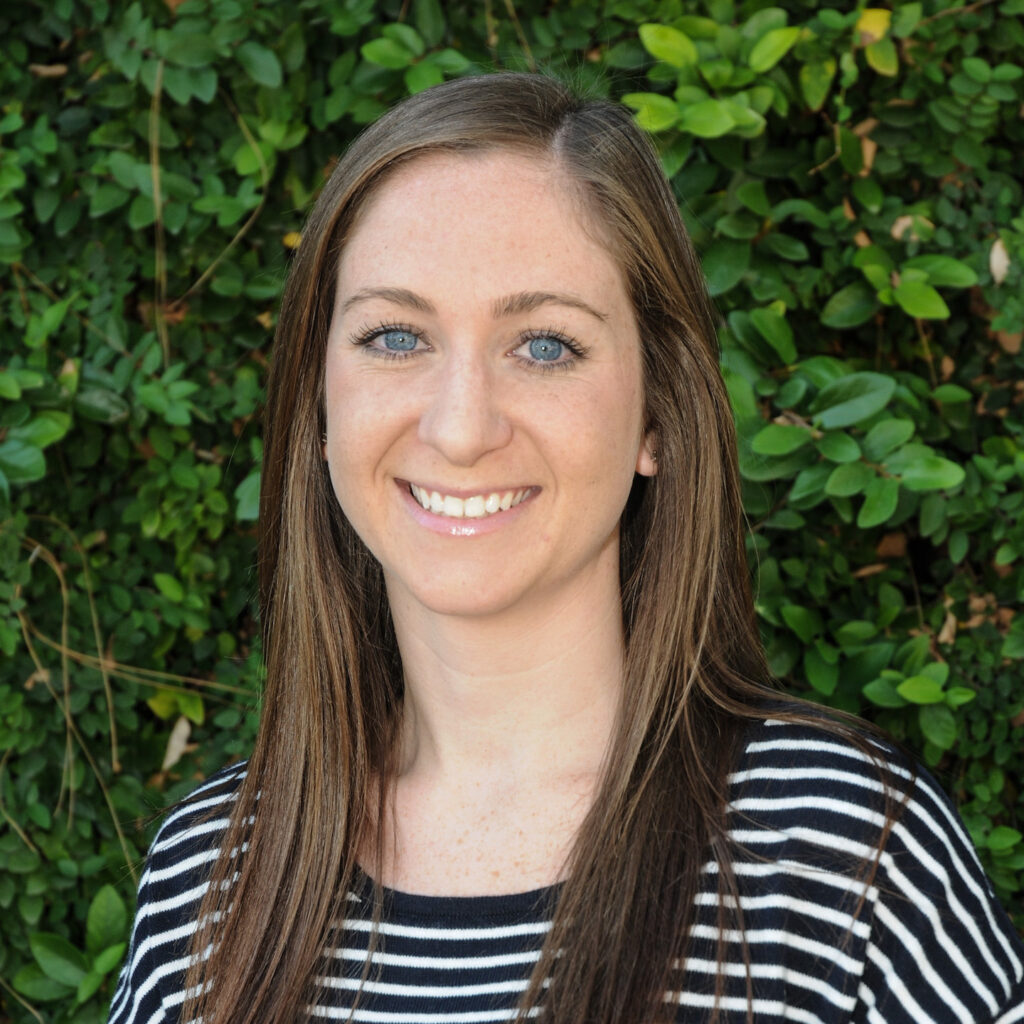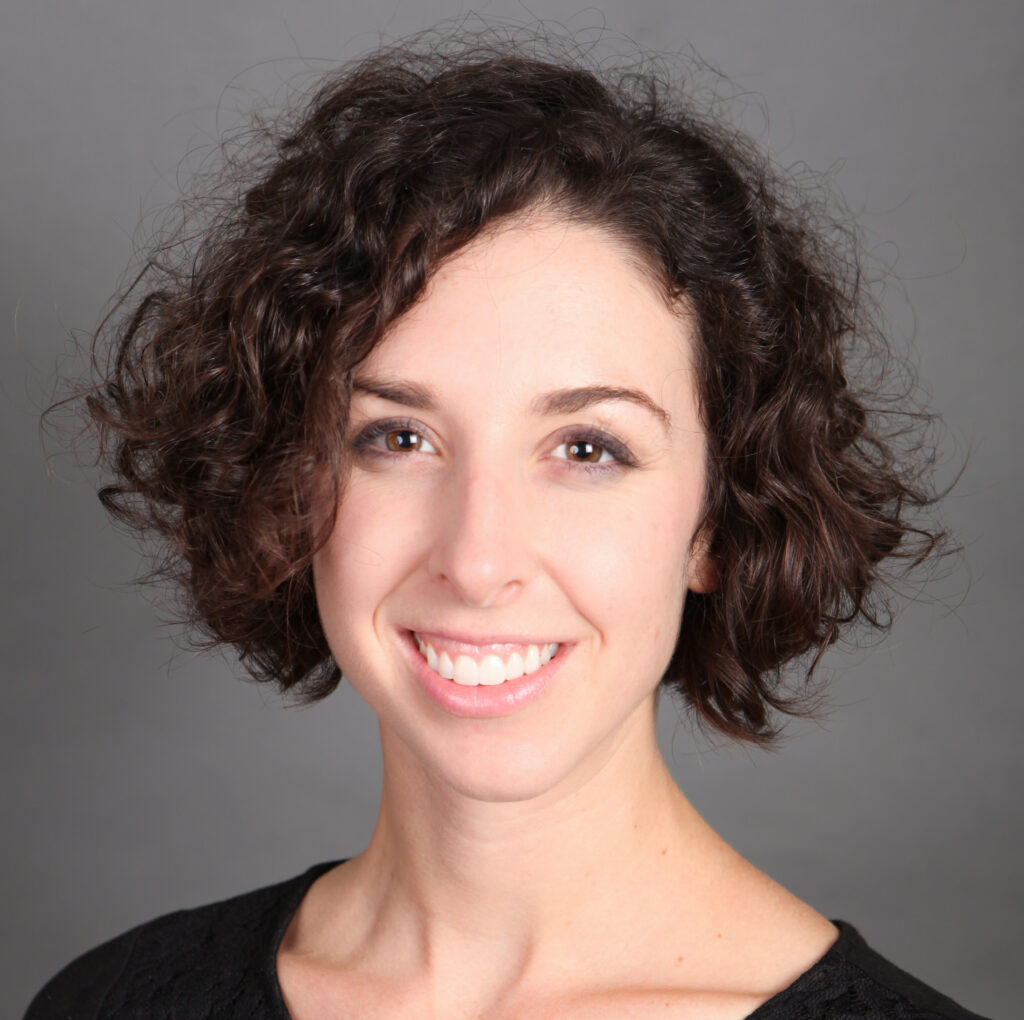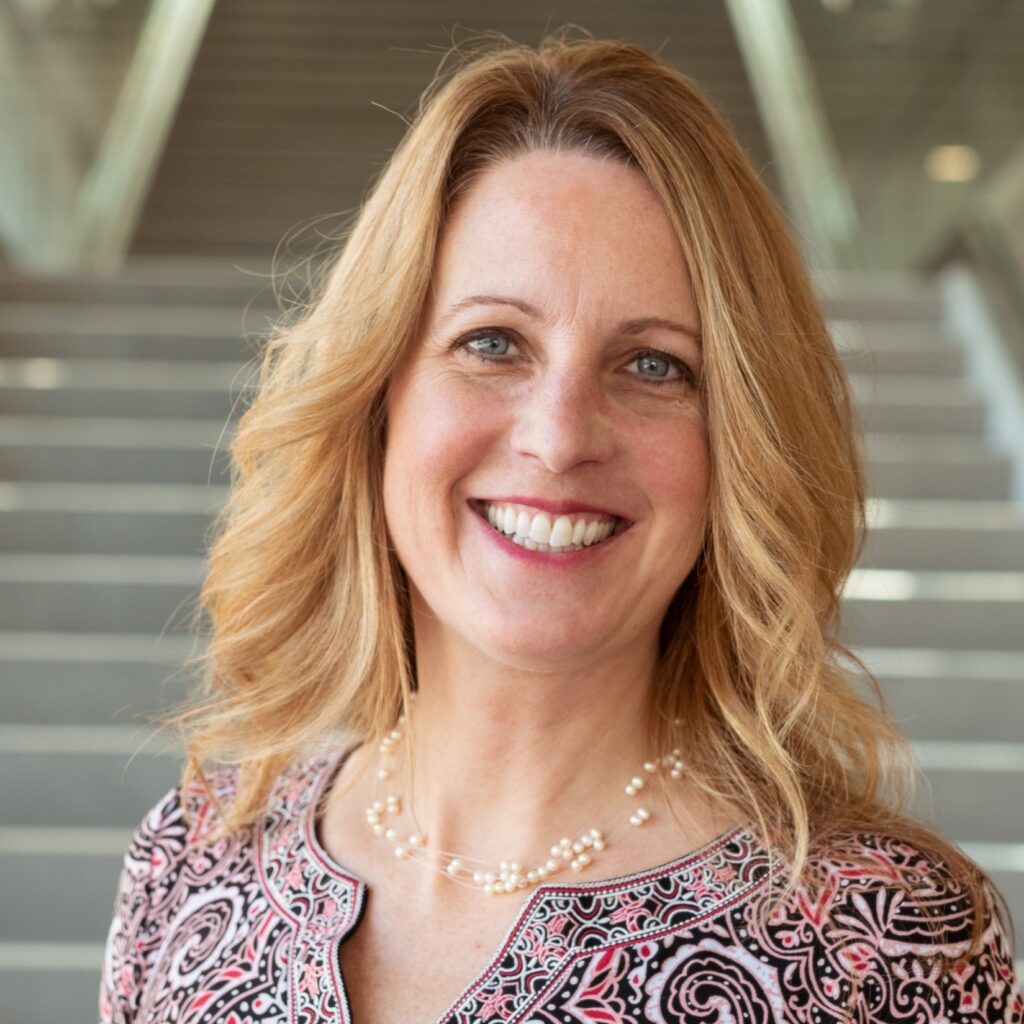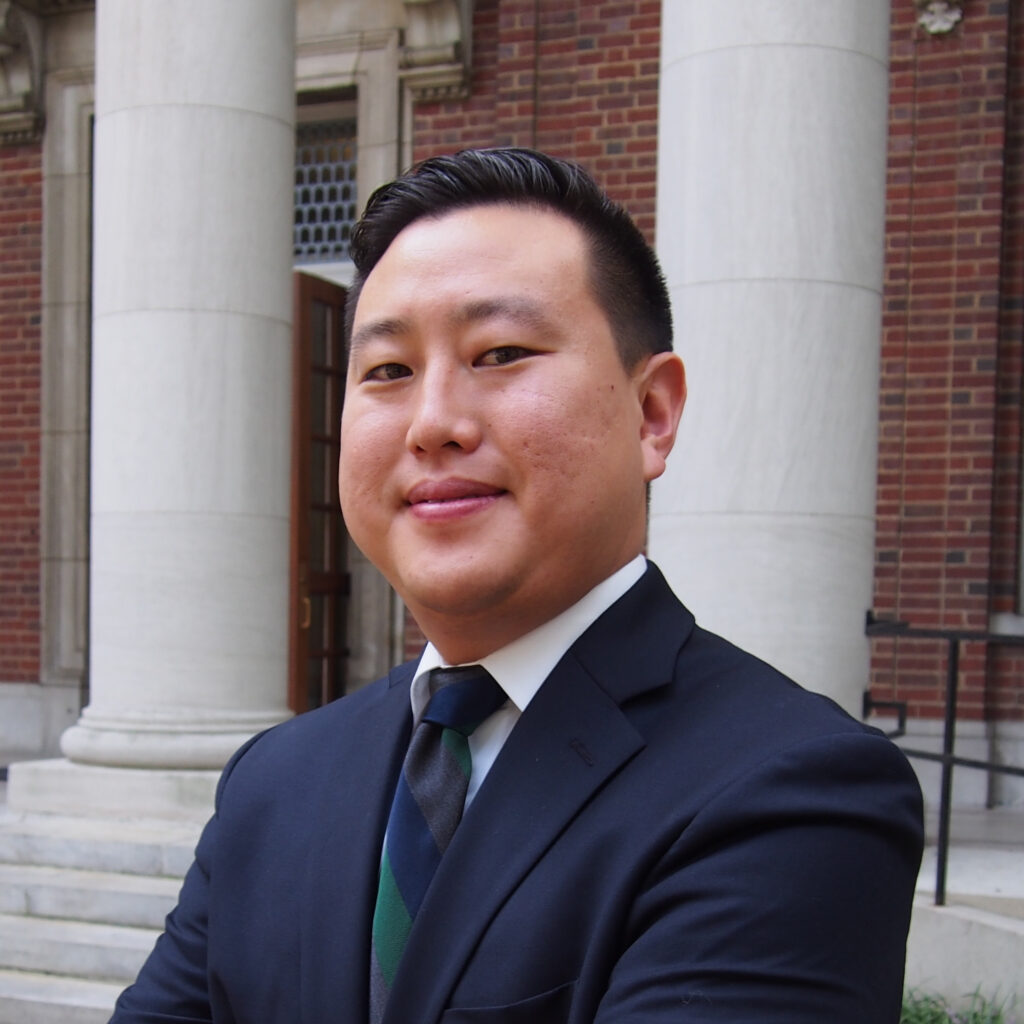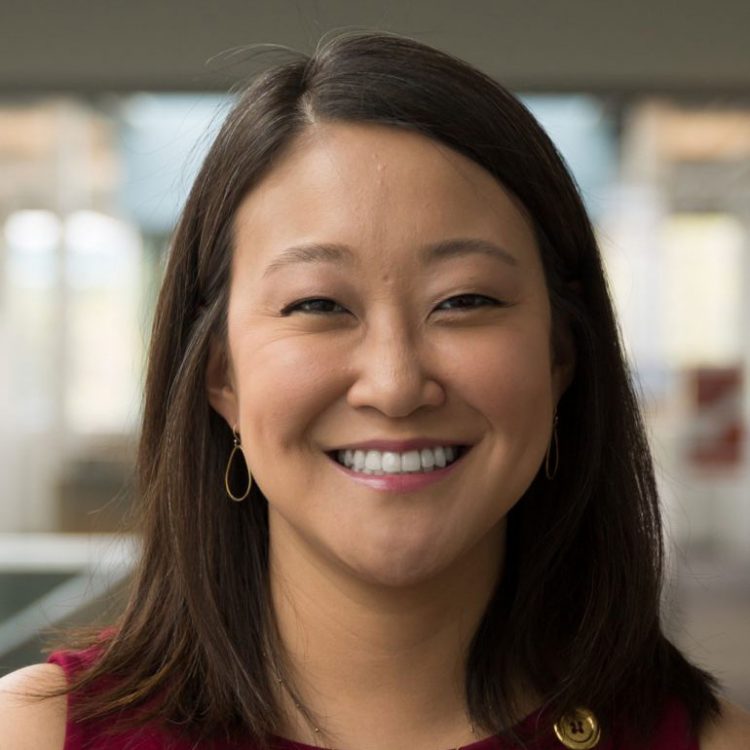Our Team
UEPC Directors
Andrea Rorrer, Ph.D.
DirectorAndrea Rorrer is Director of the Utah Education Policy Center at the University of Utah, Associate Dean for Research in the College of Education, and a Professor in the Department of Educational Leadership and Policy Studies. Andrea received her M.S. at the University of Virginia and her Ph.D. from the University of Texas, Austin. She has over 32 years of professional experience in education, including roles as a policy analyst and a research associate in Texas, and a school administrator and a classroom teacher in Virginia.
Andrea’s expertise is school, district, and state leadership, policy, and educational change, particularly those changes aimed at increasing equity in student access and outcomes. Her work emphasizes systems approaches to build capacity and conditions for equity and excellence. She conducts research with and provides technical assistance and support to local schools and school districts, the state board of education, the legislature, and community-based organizations. In addition to policy and research reports, her scholarship on leadership preparation and practice, system change, school improvement, and educational policy has been published in the Journal of Educational Administration, Educational Administration Quarterly (EAQ), Theory into Practice, Educational Policy, the Journal of Educational Policy, Journal of Special Education Leadership, Journal of Cases in Educational Leadership, Peabody Journal of Education, Journal of Research on Educational Leadership and Economics of Education Review, and the UCEA Review, among other publications (e.g., 2006 Politics of Education Yearbook) and book chapters.
In the past, she served as an associate editor for EAQ, and has served on the editorial boards for the American Educational Research Journal-Social Institutional Analysis, and the Journal of Cases in Educational Leadership and a co-features editor for the UCEA Review. She is currently an associate editor for EAQ and on the editorial board for American Educational Research Journal.
Andrea was previously interim-chair for the Department of Educational Leadership and Policy. She was also a member of the Executive Committee member (2006-2013) and UCEA President of the University Council for Educational Administration (2012). She is currently co-PI and Co-Director with Michelle Young (Loyola Marymount University) for the national project INSPIRE Leadership Collaborative. The INSPIRE Collaborative provides valid and reliable evaluation and research tools, training materials, and strategies for leadership preparation program and practice improvement, including the INSPIRE-Leadership Surveys.
Andrea in collaboration with colleagues Cori Groth and Janice Bradley has developed numerous professional learning programs in leadership. These co-developed leadership professional learning and school improvement designs are research-based, practice informed, and focused on enhancing transfer of learning for transformational purposes. Examples of this work includes the Leadership and Inquiry for Turnaround (LIFT) and district-wide Leadership Academy for leaders and leadership teams that are focused on excellence, equity, and improvement.
Her dissertation Leadership and Equity: From Reproduction to Reconstruction: An Institutional Analysis was awarded the American Education Research Association, Division A "Education Administration" 2001Dissertation Award. She is the 2006 recipient of the Jack A. Culbertson Award, which is given annually by the University Council for Educational Administration for outstanding contributions to the field as a junior professor. In addition, she is the 2008 College of Education at the University of Utah Research Award, the 2019 College of Education Service Award and recognized as part of the 2019 Celebrate U Award.
801-581-4207Andrea’s expertise is school, district, and state leadership, policy, and educational change, particularly those changes aimed at increasing equity in student access and outcomes. Her work emphasizes systems approaches to build capacity and conditions for equity and excellence. She conducts research with and provides technical assistance and support to local schools and school districts, the state board of education, the legislature, and community-based organizations. In addition to policy and research reports, her scholarship on leadership preparation and practice, system change, school improvement, and educational policy has been published in the Journal of Educational Administration, Educational Administration Quarterly (EAQ), Theory into Practice, Educational Policy, the Journal of Educational Policy, Journal of Special Education Leadership, Journal of Cases in Educational Leadership, Peabody Journal of Education, Journal of Research on Educational Leadership and Economics of Education Review, and the UCEA Review, among other publications (e.g., 2006 Politics of Education Yearbook) and book chapters.
In the past, she served as an associate editor for EAQ, and has served on the editorial boards for the American Educational Research Journal-Social Institutional Analysis, and the Journal of Cases in Educational Leadership and a co-features editor for the UCEA Review. She is currently an associate editor for EAQ and on the editorial board for American Educational Research Journal.
Andrea was previously interim-chair for the Department of Educational Leadership and Policy. She was also a member of the Executive Committee member (2006-2013) and UCEA President of the University Council for Educational Administration (2012). She is currently co-PI and Co-Director with Michelle Young (Loyola Marymount University) for the national project INSPIRE Leadership Collaborative. The INSPIRE Collaborative provides valid and reliable evaluation and research tools, training materials, and strategies for leadership preparation program and practice improvement, including the INSPIRE-Leadership Surveys.
Andrea in collaboration with colleagues Cori Groth and Janice Bradley has developed numerous professional learning programs in leadership. These co-developed leadership professional learning and school improvement designs are research-based, practice informed, and focused on enhancing transfer of learning for transformational purposes. Examples of this work includes the Leadership and Inquiry for Turnaround (LIFT) and district-wide Leadership Academy for leaders and leadership teams that are focused on excellence, equity, and improvement.
Her dissertation Leadership and Equity: From Reproduction to Reconstruction: An Institutional Analysis was awarded the American Education Research Association, Division A "Education Administration" 2001Dissertation Award. She is the 2006 recipient of the Jack A. Culbertson Award, which is given annually by the University Council for Educational Administration for outstanding contributions to the field as a junior professor. In addition, she is the 2008 College of Education at the University of Utah Research Award, the 2019 College of Education Service Award and recognized as part of the 2019 Celebrate U Award.
andrea.rorrer@utah.edu
Cori Groth, Ph.D.
Associate DirectorCori Groth, Ph.D. is the UEPC Associate Director who works with the Bridgeworks School Improvement team and the UEPC Evaluation Team to support educational and community-based organizations in improving programs, policies, and practices that result in excellent and equitable outcomes for the youth and adults they serve.
Cori is also an Associate Adjunct Faculty with the Educational Leadership and Policy Department in the College of Education where she teaches courses in teacher and leadership preparation programs and serves on various department and doctoral committees.
Cori believes in the power of education to create windows of opportunities for youth to thrive and become active members of our communities and to make the world a better place. She also believes that strong leadership and engaging in continuous improvement and inquiry, including having access to high quality research and evaluation, are the keys to getting the desired outcomes.
Cori has over 20 years of experience helping clients understand whether educational policies, programs, and practices are being implemented as intended, whether they are effective and have an impact, and how they might be improved. She also has over 10 years of experience in supporting leadership development and school improvement as a learning partner with individual schools and through the design and implementation of a variety of leadership development programs.
Since joining the UEPC in 2006, Cori has led studies on charter school governance, comprehensive school reform, arts education, school leadership and improvement, afterschool programs and other community school initiatives, state education agency capacity building efforts, school counseling, and variety of professional learning programs for teachers in K-12 and higher education.
She holds a Ph.D. in Sociology from the University of Utah, an M.A. in Sociology from Arizona State University, and a B.S. in Public Relations from the University of Utah.
Cori is also a member of the American Education Research Association, the University Council of Educational Administration, and the American Evaluation Association. Cori is also a member of Learning Forward, the Association for Supervision and Curriculum Development (ASCD), and the National School Reform Faculty. Locally she has been involved in the Utah Afterschool Network as a past board member, president, and advisory board member.
801-581-5177Cori is also an Associate Adjunct Faculty with the Educational Leadership and Policy Department in the College of Education where she teaches courses in teacher and leadership preparation programs and serves on various department and doctoral committees.
Cori believes in the power of education to create windows of opportunities for youth to thrive and become active members of our communities and to make the world a better place. She also believes that strong leadership and engaging in continuous improvement and inquiry, including having access to high quality research and evaluation, are the keys to getting the desired outcomes.
Cori has over 20 years of experience helping clients understand whether educational policies, programs, and practices are being implemented as intended, whether they are effective and have an impact, and how they might be improved. She also has over 10 years of experience in supporting leadership development and school improvement as a learning partner with individual schools and through the design and implementation of a variety of leadership development programs.
Since joining the UEPC in 2006, Cori has led studies on charter school governance, comprehensive school reform, arts education, school leadership and improvement, afterschool programs and other community school initiatives, state education agency capacity building efforts, school counseling, and variety of professional learning programs for teachers in K-12 and higher education.
She holds a Ph.D. in Sociology from the University of Utah, an M.A. in Sociology from Arizona State University, and a B.S. in Public Relations from the University of Utah.
Cori is also a member of the American Education Research Association, the University Council of Educational Administration, and the American Evaluation Association. Cori is also a member of Learning Forward, the Association for Supervision and Curriculum Development (ASCD), and the National School Reform Faculty. Locally she has been involved in the Utah Afterschool Network as a past board member, president, and advisory board member.
cori.groth@utah.edu
Leadership
Ellen Altermatt, Ph.D.
Assistant Director, Research & EvaluationEllen Altermatt, Ph.D., is a Senior Research and Evaluation Associate who works with UEPC collaborators to understand the impact of educational policies, programs, and practices on educators and students.
Ellen believes that we can do more to create educational environments that provide challenging, supportive, and equitable learning opportunities. She is committed to listening to, learning from, and working collaboratively with administrators, educators, service providers, caregivers, and students to improve educational experiences and outcomes for all individuals.
Ellen has over 20 years of experience conducting basic and applied educational research and over 15 years of experience teaching at both the undergraduate and graduate levels. Her basic research program has focused on understanding how everyday interactions with parents, educators, and, especially, peers impact the academic outcomes of K-16 students. Her applied work has focused on conducting formative and summative evaluations for programs in higher education, K-12, and out-of-school time (OST) settings. Areas of expertise include designing and conducting correlational, experimental, and quasi-experimental studies, developing and validating survey measures, performing and coding classroom and OST observations, conducting and coding interviews with individuals and focus groups, creating data visualizations, and analyzing both quantitative and qualitative data.
Ellen holds a Ph.D. in developmental psychology and a M.S. in educational psychology, both from the University of Illinois at Urbana-Champaign. She holds a B.A. with majors in Psychology and English/Linguistics from Millersville University of Pennsylvania.
ellen.altermatt@utah.eduEllen believes that we can do more to create educational environments that provide challenging, supportive, and equitable learning opportunities. She is committed to listening to, learning from, and working collaboratively with administrators, educators, service providers, caregivers, and students to improve educational experiences and outcomes for all individuals.
Ellen has over 20 years of experience conducting basic and applied educational research and over 15 years of experience teaching at both the undergraduate and graduate levels. Her basic research program has focused on understanding how everyday interactions with parents, educators, and, especially, peers impact the academic outcomes of K-16 students. Her applied work has focused on conducting formative and summative evaluations for programs in higher education, K-12, and out-of-school time (OST) settings. Areas of expertise include designing and conducting correlational, experimental, and quasi-experimental studies, developing and validating survey measures, performing and coding classroom and OST observations, conducting and coding interviews with individuals and focus groups, creating data visualizations, and analyzing both quantitative and qualitative data.
Ellen holds a Ph.D. in developmental psychology and a M.S. in educational psychology, both from the University of Illinois at Urbana-Champaign. She holds a B.A. with majors in Psychology and English/Linguistics from Millersville University of Pennsylvania.
Kody Colvin, Ed.D.
School and District Lead SpecialistDr. Kody Colvin (he/him/his) spent 11 years in the Salt Lake City School District (SLCSD) as a classroom teacher, instructional coach, and school administrator—assistant principal and principal. His expertise includes school leadership, instructional leadership, student support, and community engagement. As an administrator and instructional leader, Kody believes that increasing professional learning opportunities for educational practitioners is essential to improving educational outcomes for all scholars. While serving as an assistant principal at a Title 1 school, Dr. Colvin supported educators in moving their multi-language learners (MLLs) from ‘critical’ to ‘exemplary’ in two years by exceeding district and state-level averages for growth and proficiency as measured by the WIDA assessment. Dr. Colvin co-founded a group called Friends, Allies, and Mentors (F.A.M.) of the LGBTQ Community in 2016. The goal of F.A.M. is to provide professional learning experiences for educators to better support their LGBTQ stakeholders in school. In 2017, SLCSD, in partnership with F.A.M., created a task force to develop and implement policies and procedures that would better support our LGBTQ stakeholders. Dr. Colvin completed his Master of Arts in Elementary Education from Westminster College and his doctorate in Educational Leadership and Policy from the University of Utah. His research explored the impact professional learning has on educators’ capacity to embed LGBTQ-affirming pedagogy in K-12 educational spaces. Dr. Colvin also serves as an adjunct professor in the Department of Educational Leadership and Policy at the University of Utah.
kody.colvin@utah.eduYongmei Ni, Ph.D.
Assistant Director, Quantitative MethodsYongmei Ni, Ph.D., is an assistant director with the UEPC who works with UEPC research team to provide leadership on statistical, methodological, and analytic issues on evaluation projects and research projects utilizing survey data and large-scale longitudinal student and educator data.
Yongmei is committed to conduct high quality research that aims to improve educational equity and quality for all students. Specifically, her leadership research centers on leadership preparation programs that prepare transformative leaders to make a difference in schools. Her scholarship on school choice focuses on a variety topics related to equity, effectiveness, resource allocation, teacher working conditions, teacher commitment, and teacher turnover/principal turnover. At the UEPC, she has been involved in multiple projects, including the IGPI project, teacher/principal labor markets, ECAPS, dual language immersion, and STEM initiatives project.
Yongmei is also an Associate Professor and the Chair of the Department of Educational Leadership and Policy at the University of Utah. She currently serves as an associate editor for Educational Administration Quarterly. She has received the following awards: National Academy of Education (NAEd)/Spencer postdoctoral Fellowship (2012), the William J. Davis Award for the most outstanding Educational Administration Quarterly article (2013), the University of Utah, College of Education Research Award (2015), and University of Utah Funding Incentive Seed Grant (2016).
Yongmei holds a Ph.D. in Education Policy and Master’s degree in Economics from Michigan State University.
Yongmei is a member of American Educational Research Association (AERA), Association for Education Finance and Policy (AEFP), University Council for Educational Administration (UCEA).
yongmei.ni@utah.eduYongmei is committed to conduct high quality research that aims to improve educational equity and quality for all students. Specifically, her leadership research centers on leadership preparation programs that prepare transformative leaders to make a difference in schools. Her scholarship on school choice focuses on a variety topics related to equity, effectiveness, resource allocation, teacher working conditions, teacher commitment, and teacher turnover/principal turnover. At the UEPC, she has been involved in multiple projects, including the IGPI project, teacher/principal labor markets, ECAPS, dual language immersion, and STEM initiatives project.
Yongmei is also an Associate Professor and the Chair of the Department of Educational Leadership and Policy at the University of Utah. She currently serves as an associate editor for Educational Administration Quarterly. She has received the following awards: National Academy of Education (NAEd)/Spencer postdoctoral Fellowship (2012), the William J. Davis Award for the most outstanding Educational Administration Quarterly article (2013), the University of Utah, College of Education Research Award (2015), and University of Utah Funding Incentive Seed Grant (2016).
Yongmei holds a Ph.D. in Education Policy and Master’s degree in Economics from Michigan State University.
Yongmei is a member of American Educational Research Association (AERA), Association for Education Finance and Policy (AEFP), University Council for Educational Administration (UCEA).
Natalee Wilding
Operations ManagerNatalee Wilding received a BA in English from Westminster College in Salt Lake City. She was a 2016 Teach for America Corps Member in Western Massachusetts, where she taught special education to middle schoolers. Natalee has worked in education policy with DC PCSB, NACSA, and in private higher education. She provides operational and logistical support to UEPC and its research associates.
natalee.wilding@utah.eduResearch Associates
Jeremy Acree, M.S.
Research and Evaluation AssociateJeremy Acree, M.S., is a Research and Evaluation Associate who works with the UEPC Evaluation Team to support school and community partners in their efforts to improve education by creating equitable, experiential, and critical learning opportunities for all students.
Jeremy believes in the right of every student to receive an education in which they are recognized as a unique individual, supported and uplifted as part of a community of learners, and inspired to pursue their own interests and creativity. He also believes that researchers and evaluators can serve as collaborators alongside students, families, and educators in these pursuits. He values research and evaluation as processes for building knowledge and generating opportunities for learning for all those involved.
Jeremy uses both quantitative and qualitative methods to raise and address questions which help organizations think critically about the work they do, its impact, and its benefit for students. Jeremy’s previous research and evaluation experience includes work in K-12 and higher education settings, as well as research on evaluation—including culturally responsive approaches and evaluation use.
Jeremy is a Ph.D. Candidate in the Education Research Methodology Department at the University of North Carolina at Greensboro. He holds an M.S. in Educational Research, Measurement and Evaluation with an emphasis in Program Evaluation from the University of North Carolina at Greensboro, and a B.A. in Communication from the University of Tennessee Chattanooga.
Jeremy is a member of the American Evaluation Association and the American Educational Research Association (AERA).
jeremy.acree@utah.eduJeremy believes in the right of every student to receive an education in which they are recognized as a unique individual, supported and uplifted as part of a community of learners, and inspired to pursue their own interests and creativity. He also believes that researchers and evaluators can serve as collaborators alongside students, families, and educators in these pursuits. He values research and evaluation as processes for building knowledge and generating opportunities for learning for all those involved.
Jeremy uses both quantitative and qualitative methods to raise and address questions which help organizations think critically about the work they do, its impact, and its benefit for students. Jeremy’s previous research and evaluation experience includes work in K-12 and higher education settings, as well as research on evaluation—including culturally responsive approaches and evaluation use.
Jeremy is a Ph.D. Candidate in the Education Research Methodology Department at the University of North Carolina at Greensboro. He holds an M.S. in Educational Research, Measurement and Evaluation with an emphasis in Program Evaluation from the University of North Carolina at Greensboro, and a B.A. in Communication from the University of Tennessee Chattanooga.
Jeremy is a member of the American Evaluation Association and the American Educational Research Association (AERA).
Bill Altermatt, Ph.D.
Data ScientistBill Altermatt, Ph.D., is a data scientist who works with both the UEPC Evaluation team and the Bridgeworks School Improvement Team to help with research design, data transformation and analysis, and the visualization and interpretation of results.
Bill believes that people make better decisions when they use tools that reveal patterns: trends over time, differences between groups, associations among variables, etc. Used correctly, these tools broaden and deepen our understanding of the systems we are trying to improve and enable us to deploy our resources where they will do the most good.
Bill has worked in higher education for over 20 years as a professor of psychology, associate dean, and institutional researcher. For 18 years, he taught courses in research design and statistics and supervised hundreds of student research projects using a variety of methods including surveys, laboratory and field experiments, and content analysis. As an advanced R programmer, he has extensive experience accessing and maintaining secure databases, wrangling messy data, transforming and reclassifying data using regular expressions, modeling data using predictive analytics and machine learning, and visualizing the results in a way that is clear, precise, and accessible. Bill believes that research must promote autonomy, well-being, and equity for participants. He takes great care to protect the security of the confidential data with which he has been entrusted.
Bill holds a Ph.D. in social psychology with a minor in quantitative methods from the University of Illinois at Urbana-Champaign. He holds a B.A. from Millersville University of Pennsylvania with a major in psychology.
bill.altermatt@utah.eduBill believes that people make better decisions when they use tools that reveal patterns: trends over time, differences between groups, associations among variables, etc. Used correctly, these tools broaden and deepen our understanding of the systems we are trying to improve and enable us to deploy our resources where they will do the most good.
Bill has worked in higher education for over 20 years as a professor of psychology, associate dean, and institutional researcher. For 18 years, he taught courses in research design and statistics and supervised hundreds of student research projects using a variety of methods including surveys, laboratory and field experiments, and content analysis. As an advanced R programmer, he has extensive experience accessing and maintaining secure databases, wrangling messy data, transforming and reclassifying data using regular expressions, modeling data using predictive analytics and machine learning, and visualizing the results in a way that is clear, precise, and accessible. Bill believes that research must promote autonomy, well-being, and equity for participants. He takes great care to protect the security of the confidential data with which he has been entrusted.
Bill holds a Ph.D. in social psychology with a minor in quantitative methods from the University of Illinois at Urbana-Champaign. He holds a B.A. from Millersville University of Pennsylvania with a major in psychology.
Amy Auletto, Ph.D.
Senior Research and Evaluation AssociateAmy Auletto, Ph.D., is a Research and Evaluation Associate who works with UEPC stakeholders to provide timely answers to policy and research questions with the goal of improving educational outcomes for students.
Amy believes that all students deserve equitable access to effective educators and other educational resources needed to ensure success in school and beyond. She is strongly committed to improving the educational circumstances of students from underserved communities.
Amy’s research interests and expertise are in the area of educator labor markets, with a particular focus on strategies for supporting early-career teachers and ensuring their persistence in the profession. She is interested in policies that encourage teacher diversity and equitable access to educators. She uses both quantitative and qualitative methods, working with large administrative data sets, surveys, and interview data.
Prior to shifting her focus to education policy and research, Amy was a middle school math teacher in Detroit. This work inspired her to pursue macro-level strategies to improve the challenging circumstances faced by her students and colleagues.
Amy completed her Ph.D. in Education Policy at Michigan State University. She holds a Master of Arts in Educational Studies, Master of Social Work, and Bachelor of Arts in Psychology, all from the University of Michigan.
amy.auletto@utah.eduAmy believes that all students deserve equitable access to effective educators and other educational resources needed to ensure success in school and beyond. She is strongly committed to improving the educational circumstances of students from underserved communities.
Amy’s research interests and expertise are in the area of educator labor markets, with a particular focus on strategies for supporting early-career teachers and ensuring their persistence in the profession. She is interested in policies that encourage teacher diversity and equitable access to educators. She uses both quantitative and qualitative methods, working with large administrative data sets, surveys, and interview data.
Prior to shifting her focus to education policy and research, Amy was a middle school math teacher in Detroit. This work inspired her to pursue macro-level strategies to improve the challenging circumstances faced by her students and colleagues.
Amy completed her Ph.D. in Education Policy at Michigan State University. She holds a Master of Arts in Educational Studies, Master of Social Work, and Bachelor of Arts in Psychology, all from the University of Michigan.
Annie Barton, Ph.D.
Research and Evaluation AssociateAnnie Barton, Ph.D., is a Research Associate who works with the Bridgeworks School Improvement Team and the UEPC Evaluation Team to support school and community partners in their efforts to create excellent and equitable opportunities for all students.
Annie believes that all students deserve an excellent education that is rigorous, culturally responsive, and humanizing. She also believes that data-driven decision making and ongoing professional learning are at the heart of improvement.
Annie has over ten years of experience working in both teaching and administrative roles in a variety of school contexts, including Title I public, charter, and independent school settings.
Annie has a Ph.D. in Educational Leadership & Policy from the University of Utah. She also holds an M.A. in Education with an emphasis in Curriculum, Instruction, and Urban Leadership from University of Colorado - Denver, and a B.A. in Classics from Bates College.
Annie is a member of the University Council for Educational Administration (UCEA) and the American Educational Research Association (AERA).
annie.barton@utah.eduAnnie believes that all students deserve an excellent education that is rigorous, culturally responsive, and humanizing. She also believes that data-driven decision making and ongoing professional learning are at the heart of improvement.
Annie has over ten years of experience working in both teaching and administrative roles in a variety of school contexts, including Title I public, charter, and independent school settings.
Annie has a Ph.D. in Educational Leadership & Policy from the University of Utah. She also holds an M.A. in Education with an emphasis in Curriculum, Instruction, and Urban Leadership from University of Colorado - Denver, and a B.A. in Classics from Bates College.
Annie is a member of the University Council for Educational Administration (UCEA) and the American Educational Research Association (AERA).
Rachel Barnett, Ph.D.
Research and Evaluation AssociateRachel Barnett, Ph.D., is an Evaluation and Research Associate who works with the UEPC Evaluation Team to support the development and continuous improvement of data-informed educational policies, programs, and practices.
Rachel believes that all students deserve access to a high quality education and are best supported by educators who can provide rigorous instruction while incorporating culturally responsive and humanizing practices in the classroom. She is committed to conducting research and evaluations that amplify the voices of minoritized individuals to highlight the ways in which we must continue to adapt and improve educational policies, programs, and practices to create equitable and inclusive learning environments that support socioeconomic mobility and personal fulfillment for everyone in society.
Rachel has over seven years of experience working in postsecondary educational institutions conducting research and supporting initiatives focused on equity, inclusion, and student success.
Rachel holds a Ph.D. in Higher Education Leadership from the University of Dayton. She also completed her M.A. in the Social Sciences from the University of Chicago as well as a B.A. in Psychology and Philosophy from Butler University. Her doctoral dissertation focused on understanding the ways in which facilitators navigated conflict to enact humanizing practices that support dialogic learning and engagement as co-facilitators of intergroup dialogue courses in predominantly white institutional contexts.
Rachel is a member of the American Educational Research Association, the American Evaluation Association, the Association for the Study of Higher Education, and the Project Management Institute.
rachel.barnett@utah.eduRachel believes that all students deserve access to a high quality education and are best supported by educators who can provide rigorous instruction while incorporating culturally responsive and humanizing practices in the classroom. She is committed to conducting research and evaluations that amplify the voices of minoritized individuals to highlight the ways in which we must continue to adapt and improve educational policies, programs, and practices to create equitable and inclusive learning environments that support socioeconomic mobility and personal fulfillment for everyone in society.
Rachel has over seven years of experience working in postsecondary educational institutions conducting research and supporting initiatives focused on equity, inclusion, and student success.
Rachel holds a Ph.D. in Higher Education Leadership from the University of Dayton. She also completed her M.A. in the Social Sciences from the University of Chicago as well as a B.A. in Psychology and Philosophy from Butler University. Her doctoral dissertation focused on understanding the ways in which facilitators navigated conflict to enact humanizing practices that support dialogic learning and engagement as co-facilitators of intergroup dialogue courses in predominantly white institutional contexts.
Rachel is a member of the American Educational Research Association, the American Evaluation Association, the Association for the Study of Higher Education, and the Project Management Institute.
Leslie Blair M.A.
Research Associate - CommunicationsLeslie Blair is a research associate with more than 30 years of experience in higher education and research communications. She joined the UECP staff in 2023, bringing a passion for writing about a range of topics focused on education and educational leadership.
Leslie worked as Executive Director of Communications in the Division of Diversity and Community Engagement at the University of Texas, overseeing at team of five communications professionals and the communications needs of more than 40 programs and initiatives. One of the largest programs in the Division was the University Charter School System with campuses at 23 sites across Texas.
She worked 11 years at Southwest Educational Development Laboratory (SEDL) where she was a Communications Associate and Project Director and was responsible for the nonprofit’s magazine which had a circulation of 90,000. She also edited research reports and professional development materials, as well as books and newsletters.
Previously Leslie worked in different capacities as a communicator at New Mexico State University’s Water Resource Research Institute, the Texas Commission on Alcohol and Drug Abuse and the Center for Studies in Texas History at the University of Texas. She has edited numerous books on school reform and school leadership and was a co-editor and writer for As We Saw It: The Story of the Integration of the University of Texas at Austin.
She holds a B.S. in Journalism from Texas State University and an M.A. in Professional and Technical Communication from New Mexico State University.
leslie.blair@utah.eduJanice Bradley, Ph.D.
Senior School and District Improvement SpecialistJanice Bradley, Ph.D., partners with education entities to support their school improvement efforts and leadership capacity building resulting in excellence and equitable school systems.
Janice believes that leadership, educator capacity building using job-embedded professional learning through praxis, co-designing, and effective communities of learning in collaboration, are the keys to continuous improvement thereby ensuring that schools realize growth for every student. She is inspired by the commitment of her partners to serving students and communities. Janice knows that partnership principles of voice, choice, equity, and reciprocity are keys to building relationships with partners for ensuring that change and improvement results.
Janice has been a member of the UEPC Bridgeworks School Improvement Team leading school improvement efforts since 2015. Her expertise is in designing and facilitating Professional Learning for educators (state, administrators, principals, coaches, teacher leaders) at all levels of a system, designing and implementing Professional Learning Communities, Instructional Coaching, co-designing professionally and emotionally fulfilling learning cultures in schools, STEM, and facilitating implementation for change. Her research can be found in two books, Designing Schools for Meaningful Professional Learning (2014), Corwin, Give Me Five: Five Coach Teacher Principal Collaborations that Promote Mathematics Success, and the Learning Forward Journal, The Learning Professional.
Janice began her career as a classroom teacher in Title 1 schools in Austin, Texas, followed by central office roles in the Austin Independent School District that included K-12 Mathematics Specialist, Mathematics Coordinator and Director of Professional Development on the National Science Foundation-funded project, Austin Collaborative for Mathematics Education. Following her service in Austin ISD, she worked at the Charles A. Dana Center at the University of Texas (UT) at Austin as a Project Director, and Adjunct Professor. Before moving to the UEPC, Janice served as a research faculty member at New Mexico State University, instructor, and where she was Director of Leadership for Mathematically Connected Communities (MC2), a Math-Science Partnership funded project.
Janice holds a Ph.D. in Mathematics Education, M.Ed. in Science Education, and a B.S. in Education with a minor in Biology, all from University of Texas.
She currently serves as Chair-elect, and Vice Chair of Research and Support on the Learning Forward Foundation, and will become Chair of the Foundation in Dec. 2019.
janice.bradley@utah.eduJanice believes that leadership, educator capacity building using job-embedded professional learning through praxis, co-designing, and effective communities of learning in collaboration, are the keys to continuous improvement thereby ensuring that schools realize growth for every student. She is inspired by the commitment of her partners to serving students and communities. Janice knows that partnership principles of voice, choice, equity, and reciprocity are keys to building relationships with partners for ensuring that change and improvement results.
Janice has been a member of the UEPC Bridgeworks School Improvement Team leading school improvement efforts since 2015. Her expertise is in designing and facilitating Professional Learning for educators (state, administrators, principals, coaches, teacher leaders) at all levels of a system, designing and implementing Professional Learning Communities, Instructional Coaching, co-designing professionally and emotionally fulfilling learning cultures in schools, STEM, and facilitating implementation for change. Her research can be found in two books, Designing Schools for Meaningful Professional Learning (2014), Corwin, Give Me Five: Five Coach Teacher Principal Collaborations that Promote Mathematics Success, and the Learning Forward Journal, The Learning Professional.
Janice began her career as a classroom teacher in Title 1 schools in Austin, Texas, followed by central office roles in the Austin Independent School District that included K-12 Mathematics Specialist, Mathematics Coordinator and Director of Professional Development on the National Science Foundation-funded project, Austin Collaborative for Mathematics Education. Following her service in Austin ISD, she worked at the Charles A. Dana Center at the University of Texas (UT) at Austin as a Project Director, and Adjunct Professor. Before moving to the UEPC, Janice served as a research faculty member at New Mexico State University, instructor, and where she was Director of Leadership for Mathematically Connected Communities (MC2), a Math-Science Partnership funded project.
Janice holds a Ph.D. in Mathematics Education, M.Ed. in Science Education, and a B.S. in Education with a minor in Biology, all from University of Texas.
She currently serves as Chair-elect, and Vice Chair of Research and Support on the Learning Forward Foundation, and will become Chair of the Foundation in Dec. 2019.
Matt Doane, MPP
Study Coordinator and Research and Evaluation AssociateMatt Doane, MPP, is a Study Coordinator and Research and Evaluation Associate who supports the broader UEPC team in successfully implementing high-quality research and evaluation work.
Matt believes that being guided by data-driven research is key to informing effective educational practices. It is through thoughtful and creative empirical research that educators can best know how to improve educational outcomes. Matt also believes it is important to always consider how academic research findings can be implemented at a practitioner level.
Matt brings a meticulous attention to detail in regards to project design and execution. Much of Matt’s educational training and experience has focused on quantitative research design and methodology. This has included conducting an outcome evaluation of a college preparation program that is implemented across Utah high schools for his master’s degree capstone project. Matt also brings experience in qualitative research, project management, survey design and development, data collection, and data visualization.
Matt holds a Master of Public Policy (MPP) degree from the University of Utah and a Bachelor of International Relations degree from Brigham Young University.
matt.doane@utah.eduMatt believes that being guided by data-driven research is key to informing effective educational practices. It is through thoughtful and creative empirical research that educators can best know how to improve educational outcomes. Matt also believes it is important to always consider how academic research findings can be implemented at a practitioner level.
Matt brings a meticulous attention to detail in regards to project design and execution. Much of Matt’s educational training and experience has focused on quantitative research design and methodology. This has included conducting an outcome evaluation of a college preparation program that is implemented across Utah high schools for his master’s degree capstone project. Matt also brings experience in qualitative research, project management, survey design and development, data collection, and data visualization.
Matt holds a Master of Public Policy (MPP) degree from the University of Utah and a Bachelor of International Relations degree from Brigham Young University.
Leslie Evans, M.Ed.
School and District Improvement SpecialistLeslie Evans, M. Ed., is a School Improvement Research Associate on the UEPC Bridgeworks team supporting districts and schools in continuous improvement through collaboration, implementation science, facilitation, and evidence-based instructional strategies.
Leslie believes that the promise of a free, appropriate, public education for every citizen is the backbone of a democratic and free society. This promise is grounded in a dedication to continuous improvement and meaningful support at all levels of the education system and is attainable when we focus on leadership, educator capacity building, family & community engagement, and building collaborative school cultures in service to student learning.
Prior to joining the Bridgeworks Team, Leslie served as a School Improvement Education Specialist at USBE administering improvement programs under ESSA. She played a key role in refining and enhancing the Utah State Systems of Support for Improvement Handbook and brings with her a deep knowledge of implementation science, federal and state policy, comprehensive needs assessments, improvement science, and systems change. She is passionate about family and community engagement and believes that student learning and safety should be at the heart of every educator’s effort.
Leslie began her career in education as a paraeducator, an experience that inspired her to seek a master’s degree in Special Education, Mild/Moderate Disabilities. She has been a teacher, special education director, assistant principal, Title I director, an implementation coach, and an education specialist. She earned her M.Ed. from the University of Utah and her B.A. in English Literature from Westminster College.
leslie.evans@utah.eduLeslie believes that the promise of a free, appropriate, public education for every citizen is the backbone of a democratic and free society. This promise is grounded in a dedication to continuous improvement and meaningful support at all levels of the education system and is attainable when we focus on leadership, educator capacity building, family & community engagement, and building collaborative school cultures in service to student learning.
Prior to joining the Bridgeworks Team, Leslie served as a School Improvement Education Specialist at USBE administering improvement programs under ESSA. She played a key role in refining and enhancing the Utah State Systems of Support for Improvement Handbook and brings with her a deep knowledge of implementation science, federal and state policy, comprehensive needs assessments, improvement science, and systems change. She is passionate about family and community engagement and believes that student learning and safety should be at the heart of every educator’s effort.
Leslie began her career in education as a paraeducator, an experience that inspired her to seek a master’s degree in Special Education, Mild/Moderate Disabilities. She has been a teacher, special education director, assistant principal, Title I director, an implementation coach, and an education specialist. She earned her M.Ed. from the University of Utah and her B.A. in English Literature from Westminster College.
Emily McDowell, M.S.
Research and Evaluation AssociateEmily McDowell, M.S., is a Research and Evaluation Associate who works with the UEPC Evaluation Team to support the ongoing development and improvement of data-driven educational policies, programs, and practices.
Emily believes that schools play a critical role in children’s cognitive and social development. She is committed to helping education organizations effectively and equitably serve students with diverse backgrounds, goals, and needs, particularly those from underrepresented groups. She values a collaborative and utilization-focused approach to partnering with clients and engaging with stakeholders.
Emily uses both quantitative and qualitative methods to address questions that help organizations enhance their impact and/or inform the field of education more broadly. She is particularly interested in the experiences of students with disabilities and the programs and policies that affect their inclusion at school, both academically and socially. Emily’s research and evaluation portfolio most recently includes work with a national school-based social inclusion program funded by Special Olympics North America, two U.S. Department of Education grants integrating technology-focused pedagogy into university curricula and rural K-12 school districts, a pilot program teaching chess as part of the second-grade curriculum in Title I schools, and an initiative funded by the National Science Foundation to broaden participation in STEM careers for middle and high school students.
Prior to joining the UEPC, Emily was part of a team of researchers, evaluators, and practitioners in the Center for Social Development and Education at the University of Massachusetts Boston, where she led a variety of projects focused on the inclusion of youth with disabilities in educational and recreational settings. She is the co-editor of a book titled Best Practices for Inclusive Camps, which was published by Sagamore-Venture in 2023.
Emily completed her Master of Science in Educational Research, Measurement, and Evaluation, with a concentration in Program Evaluation, at the University of North Carolina Greensboro. She also holds a Bachelor of Arts in Child Study and Human Development from Tufts University. She is a member of the American Evaluation Association, as well as AEA’s local affiliate in North Carolina, the North Carolina Evaluators Network.
emily.mcdowell@utah.eduEmily believes that schools play a critical role in children’s cognitive and social development. She is committed to helping education organizations effectively and equitably serve students with diverse backgrounds, goals, and needs, particularly those from underrepresented groups. She values a collaborative and utilization-focused approach to partnering with clients and engaging with stakeholders.
Emily uses both quantitative and qualitative methods to address questions that help organizations enhance their impact and/or inform the field of education more broadly. She is particularly interested in the experiences of students with disabilities and the programs and policies that affect their inclusion at school, both academically and socially. Emily’s research and evaluation portfolio most recently includes work with a national school-based social inclusion program funded by Special Olympics North America, two U.S. Department of Education grants integrating technology-focused pedagogy into university curricula and rural K-12 school districts, a pilot program teaching chess as part of the second-grade curriculum in Title I schools, and an initiative funded by the National Science Foundation to broaden participation in STEM careers for middle and high school students.
Prior to joining the UEPC, Emily was part of a team of researchers, evaluators, and practitioners in the Center for Social Development and Education at the University of Massachusetts Boston, where she led a variety of projects focused on the inclusion of youth with disabilities in educational and recreational settings. She is the co-editor of a book titled Best Practices for Inclusive Camps, which was published by Sagamore-Venture in 2023.
Emily completed her Master of Science in Educational Research, Measurement, and Evaluation, with a concentration in Program Evaluation, at the University of North Carolina Greensboro. She also holds a Bachelor of Arts in Child Study and Human Development from Tufts University. She is a member of the American Evaluation Association, as well as AEA’s local affiliate in North Carolina, the North Carolina Evaluators Network.
Brody Moore
Research and Evaluation AssociateI'm Brody Moore, and I have a passion for statistics and data analysis. I have been associated with the UEPC since 2019, where I have honed my skills as a data professional. With a BS in Statistics and an MSTAT in Biostatistics, I bring a strong academic foundation to my work.
Over the years, I have gained experience as a Statistician and a business intelligence developer, leveraging data to derive meaningful insights and drive strategic decision-making. Currently, I serve as a data science consultant, helping organizations make data-driven decisions and solve complex problems using advanced analytics techniques.
Beyond the professional realm, I have a love for sports. Golf and basketball are two of my favorite pastimes, allowing me to unwind and stay active. Additionally, I am a proud parent to a wonderful daughter, who brings immense joy to my life.
With a blend of analytical expertise, professional experience, and a commitment to personal growth, I am dedicated to making a positive impact through data-driven solutions and contributing to the field of statistics and data science through my work with the UEPC.
brody.moore@utah.eduKamille Noor Sheikh, M.S.
Evaluation and Program SpecialistKamille Noor Sheikh, M.S., is an Evaluation and Program Specialist at the UEPC who works with out-of-school time (OST) and community-based organizations to support intentional and data-driven programs to meet the needs of youth and families. She brings expertise in youth programming, partnership development and federal and state education grants and policy. In her role, she will continue to work to strengthen the OST system of partners in Utah to ensure efforts around funding, data collection, research, and technical assistance are aligned across all OST agencies.
Kamille believes in the power of partnerships among youth, families, schools, and community organizations to cultivate rich and engaging environments for all to succeed. She feels quality OST programs are a strong protective factor for youth and is passionate about working alongside communities to increase quality, access, and availability of these programs in both urban and rural settings. She is particularly interested in building the capacity of OST leaders to utilize all levels of program data to support better outcomes for youth and families.
Kamille has worked in OST and community-based programs for over a decade, starting in high school. She developed foundational research skills through her participation in the Ronald E. McNair Scholars program during her undergraduate years. She gained valuable community research experience working with University of Utah Neighborhood Partners during graduate school. Her time at the Utah Afterschool Network, the state’s resource hub for OST programming, provided her a strong understanding of the landscape of such programs in Utah. She has overseen federal funding for OST programs at the Department of Workforce Services and the Utah State Board of Education.
Kamille received a Master of Science in Human Development and Social Policy from the University of Utah and Bachelor of Science in Developmental Psychology from Westminster College. She currently serves as a board member for Girls on the Run Utah.
kamille.sheikh@utah.eduKamille believes in the power of partnerships among youth, families, schools, and community organizations to cultivate rich and engaging environments for all to succeed. She feels quality OST programs are a strong protective factor for youth and is passionate about working alongside communities to increase quality, access, and availability of these programs in both urban and rural settings. She is particularly interested in building the capacity of OST leaders to utilize all levels of program data to support better outcomes for youth and families.
Kamille has worked in OST and community-based programs for over a decade, starting in high school. She developed foundational research skills through her participation in the Ronald E. McNair Scholars program during her undergraduate years. She gained valuable community research experience working with University of Utah Neighborhood Partners during graduate school. Her time at the Utah Afterschool Network, the state’s resource hub for OST programming, provided her a strong understanding of the landscape of such programs in Utah. She has overseen federal funding for OST programs at the Department of Workforce Services and the Utah State Board of Education.
Kamille received a Master of Science in Human Development and Social Policy from the University of Utah and Bachelor of Science in Developmental Psychology from Westminster College. She currently serves as a board member for Girls on the Run Utah.
Magda Tsagaris, M.Ed.
School and District Improvement SpecialistMagda Tsagaris, M.Ed is a school support associate with the UEPC Bridgeworks team working to support schools across the state of Utah to establish meaningful collaborative partnerships and implement data-driven practices to impact student achievement.
Magda believes that strong schools are the key to healthy communities. As a proponent of community schools, Magda uses her knowledge of research and pedagogy to help school systems select and implement strategies that are matched to their unique needs. Over the years, she has taught at a variety of schools including both Title I and non-Title I public schools.
Prior to joining the UEPC Bridgeworks team, Magda worked directly with teachers, administrators, and education leaders across the state of Utah as well as multiple school communities in Illinois and North Dakota. Her work included performing on-site appraisals, identifying trends and root causes of underperformance, creating focused improvement plans, providing professional development and coaching, developing content, and implementing evidence-based instructional strategies to improve teaching and increase student achievement.
Magda earned her M.Ed. from Southern Utah University with an emphasis in Early Literacy, and her B.S. in Elementary Education from the University of Utah.
magda.tsagaris@utah.eduMagda believes that strong schools are the key to healthy communities. As a proponent of community schools, Magda uses her knowledge of research and pedagogy to help school systems select and implement strategies that are matched to their unique needs. Over the years, she has taught at a variety of schools including both Title I and non-Title I public schools.
Prior to joining the UEPC Bridgeworks team, Magda worked directly with teachers, administrators, and education leaders across the state of Utah as well as multiple school communities in Illinois and North Dakota. Her work included performing on-site appraisals, identifying trends and root causes of underperformance, creating focused improvement plans, providing professional development and coaching, developing content, and implementing evidence-based instructional strategies to improve teaching and increase student achievement.
Magda earned her M.Ed. from Southern Utah University with an emphasis in Early Literacy, and her B.S. in Elementary Education from the University of Utah.
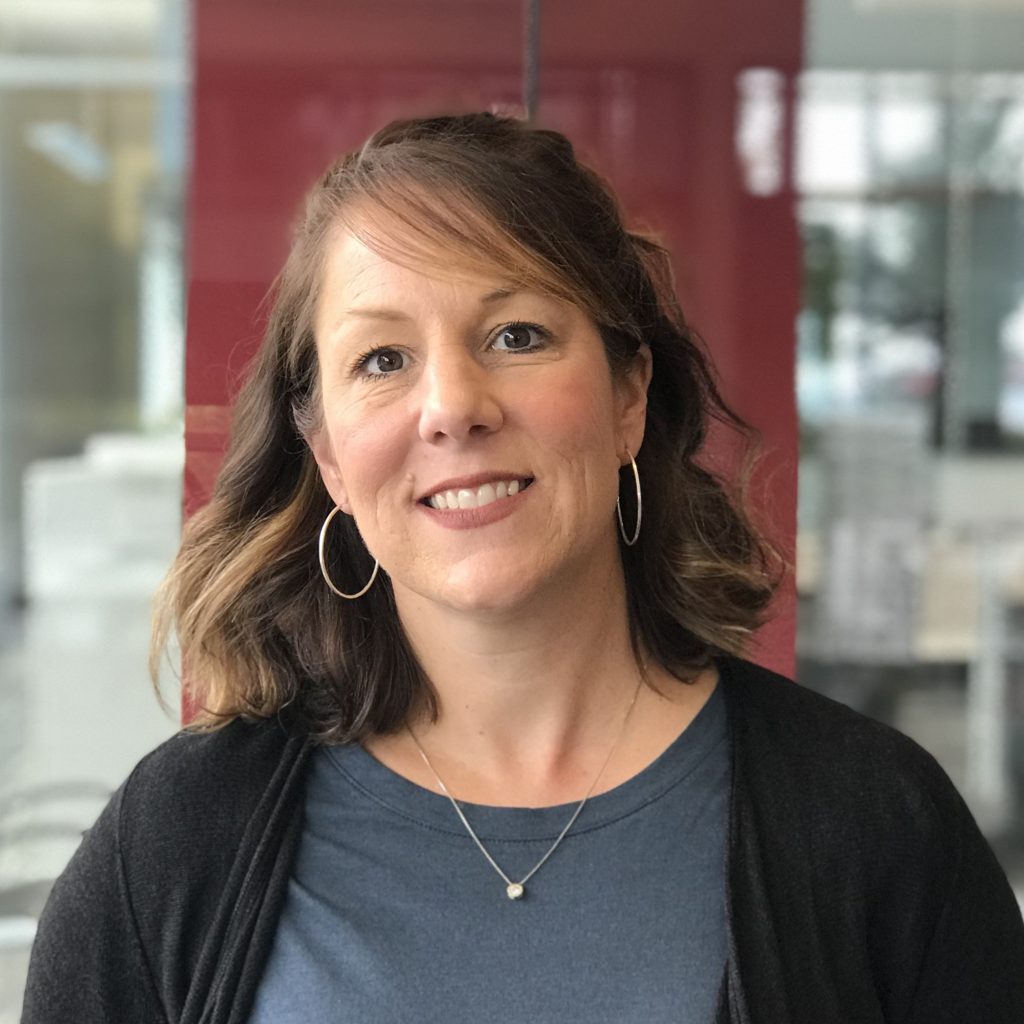
Lisa Wisham, M.Ed.
Senior School Support and Research Associate and School and District Improvement Specialistlisa.wisham@utah.edu
Lisa Wisham, M.Ed.
Senior School Support and Research Associate and School and District Improvement SpecialistLisa Wisham, M.Ed., is a research associate who works with both the Bridgeworks School Improvement Team and the UEPC Evaluation team.
Lisa believes that helping others make intentional connections to align their work around shared outcomes is critical to building collective capacity and strengthening opportunities for Utah students and families.
Lisa's expertise is in out-of-school-time programs, cultivating and strengthening community partnerships, and state and federal school programs.
Within her role on the Bridgeworks School Improvement Team, Lisa has worked closely with the Canyons School District for the past two years. In addition to her work with the school leadership teams and faculties at Midvale and Copperview Elementary Schools, Lisa has helped to develop and facilitate the afterschool professional learning community (PLC) within the district. This PLC utilizes a data-driven continuous improvement cycle to ensure alignment between the afterschool programs and the traditional school day.
Lisa began her career as a certified teacher in an alternative high school here in Utah. She was also the principal of an accredited private school/residential treatment center for five years. She worked at the Utah State Board of Education for nine years in the Federal Programs Office, where she managed federal and state grants for community and afterschool programs. Lisa holds an active Level 2 Utah Educator License.
Lisa has received the following awards: United Way/South Salt Lake Promise Partner of the Year - 2014, City of South Salt Lake; Utah Afterschool Advocate of the Year Award –2017, Utah Afterschool Network.
Lisa holds a Master’s Degree in Special Education from James Madison University.
Lisa is on the Board of Directors at the Utah Afterschool Network.
lisa.wisham@utah.eduLisa believes that helping others make intentional connections to align their work around shared outcomes is critical to building collective capacity and strengthening opportunities for Utah students and families.
Lisa's expertise is in out-of-school-time programs, cultivating and strengthening community partnerships, and state and federal school programs.
Within her role on the Bridgeworks School Improvement Team, Lisa has worked closely with the Canyons School District for the past two years. In addition to her work with the school leadership teams and faculties at Midvale and Copperview Elementary Schools, Lisa has helped to develop and facilitate the afterschool professional learning community (PLC) within the district. This PLC utilizes a data-driven continuous improvement cycle to ensure alignment between the afterschool programs and the traditional school day.
Lisa began her career as a certified teacher in an alternative high school here in Utah. She was also the principal of an accredited private school/residential treatment center for five years. She worked at the Utah State Board of Education for nine years in the Federal Programs Office, where she managed federal and state grants for community and afterschool programs. Lisa holds an active Level 2 Utah Educator License.
Lisa has received the following awards: United Way/South Salt Lake Promise Partner of the Year - 2014, City of South Salt Lake; Utah Afterschool Advocate of the Year Award –2017, Utah Afterschool Network.
Lisa holds a Master’s Degree in Special Education from James Madison University.
Lisa is on the Board of Directors at the Utah Afterschool Network.
Julianne Zemaitis, Ph.D.
Research and Evaluation AssociateJulianne Zemaitis, Ph.D., is an Evaluation and Research Associate with the UEPC Evaluation Team. She conducts research with and in support of schools and other partner organizations seeking to better understand and improve educational policies, programs, and practices.
Julianne believes the value of research, assessment, and evaluation is best realized through the development of sustained partnerships with educators, administrators, policymakers, and community members who are the driving forces behind educational policies and practices. She is committed to working alongside these collaborators as a thought partner and methodologist to promote well-informed and responsive research and evaluation practices to address local needs and support continuous improvement.
Julianne’s previous research and evaluation experience includes work in K-12 and higher education settings. Through these experiences, she has developed a robust foundation in quantitative and qualitative research methodologies, evaluation theories, and psychometric principles and practices. Julianne also has extensive experience in project management, survey design, data collection and management, and reporting. Her professional interests include exploring how to effectively develop practitioner-researcher partnerships and leverage the practical and technical skills of evaluation teams and interest groups to support rigorous, timely and efficient research, assessment, and data use practices to promote individual and institutional learning.
Julianne holds a M.S. and Ph.D. in Educational Research, Measurement, and Evaluation from the University of North Carolina Greensboro. She also has a Bachelor of Arts in Psychology from the University of Notre Dame. She is a member of the American Evaluation Association and the American Education Research Association.
julianne.zemaitis@utah.eduJulianne believes the value of research, assessment, and evaluation is best realized through the development of sustained partnerships with educators, administrators, policymakers, and community members who are the driving forces behind educational policies and practices. She is committed to working alongside these collaborators as a thought partner and methodologist to promote well-informed and responsive research and evaluation practices to address local needs and support continuous improvement.
Julianne’s previous research and evaluation experience includes work in K-12 and higher education settings. Through these experiences, she has developed a robust foundation in quantitative and qualitative research methodologies, evaluation theories, and psychometric principles and practices. Julianne also has extensive experience in project management, survey design, data collection and management, and reporting. Her professional interests include exploring how to effectively develop practitioner-researcher partnerships and leverage the practical and technical skills of evaluation teams and interest groups to support rigorous, timely and efficient research, assessment, and data use practices to promote individual and institutional learning.
Julianne holds a M.S. and Ph.D. in Educational Research, Measurement, and Evaluation from the University of North Carolina Greensboro. She also has a Bachelor of Arts in Psychology from the University of Notre Dame. She is a member of the American Evaluation Association and the American Education Research Association.
Graduate Assistants

Marieke Timmer, M.S.
Graduate AssistantMarieke Timmer, M.S.
Graduate AssistantMarieke Timmer, MS, is a Graduate Assistant who works with the UEPC team to successfully execute research and evaluation work.
Marieke believes the quality of education is of the highest importance for a successful start in K-12. As a teacher she became interested in what was behind the curriculum, specifically in educational design and assessment, and how she could make it better. Her motivation to improve education led her to pursue a masters and PhD.
Marieke shows dedication to the various projects she works on at UEPC. She informs projects with her experiences as a teacher and researcher. During her studies she has mostly focused on instructional design, assessment, evaluation and educational policy in K-12.
Marieke has worked as a primary school teacher and middle school teacher for six years in the Netherlands and Tokyo. She has developed a framework for cultural education in a Dutch primary school and evaluated the assessment policy for bilingual students at an international school in Japan. Marieke joined the UEPC team in August 2022.
Marieke holds a Bachelor of Education and Master Educational Sciences from Utrecht University, The Netherlands. She is currently working on her Ph.D. in Education, Leadership and Policy at the University of Utah.
Marieke believes the quality of education is of the highest importance for a successful start in K-12. As a teacher she became interested in what was behind the curriculum, specifically in educational design and assessment, and how she could make it better. Her motivation to improve education led her to pursue a masters and PhD.
Marieke shows dedication to the various projects she works on at UEPC. She informs projects with her experiences as a teacher and researcher. During her studies she has mostly focused on instructional design, assessment, evaluation and educational policy in K-12.
Marieke has worked as a primary school teacher and middle school teacher for six years in the Netherlands and Tokyo. She has developed a framework for cultural education in a Dutch primary school and evaluated the assessment policy for bilingual students at an international school in Japan. Marieke joined the UEPC team in August 2022.
Marieke holds a Bachelor of Education and Master Educational Sciences from Utrecht University, The Netherlands. She is currently working on her Ph.D. in Education, Leadership and Policy at the University of Utah.
Faculty Research Associates
Utah Education Policy Center (UEPC) Faculty Associates consist of University of Utah faculty members who demonstrate leadership in education and/or educational equity, access, or opportunities at the local, regional, or national levels and whose work contributes to the mission of the UEPC. Associates work in collaboration with the UEPC on education-related initiatives. Through their scholarly activities and expertise, Associates also help guide UEPC's work and ensure that UEPC follows the latest developments in education.
Aaron Fischer, Ph.D.
Faculty Research AssociateDr. Fischer has been working with individuals with autism spectrum disorder (ASD) and their families for 15 years. He graduated from the University of Miami, where he earned a bachelors degree in psychology and worked as a research coordinator at the Center for Autism and Related Disabilities. Dr. Fischer completed his masters and doctoral degree in school psychology at Louisiana State University.
Before arriving at the University of Utah in 2014, he completed his predoctoral internship in clinical psychology at the May Institute in Boston, Massachusetts. His internship and graduate work focused on providing evidence-based practice in schools, hospitals, and mental health clinics for children with disabilities and their families. Specifically, Dr. Fischer’s clinical interests concentrate on the assessment and treatment of children and adolescents with ASD and other disabilties, as well as providing support and training to their families. As such, his scholarship is considerably influenced by his applied work in those areas.
Dr. Fischer is a Licensed Psychologist and Licensed Board Certified Behavior Analyst. He has extensive experience in the assessment and treatment of behavior problems, as well as the acquisition of adaptive skills, in individuals with ASD and developmental disabilities. Moreover, he is the director of the interdisciplinary pediatric feeding disorders clinic at the University of Utah Neurobehavior HOME program and the director of the University of Utah Technology in Training, Education, and Consultation (U-TTEC) Lab in the College of Education.
Faculty Profile
aaron.fischer@utah.eduBefore arriving at the University of Utah in 2014, he completed his predoctoral internship in clinical psychology at the May Institute in Boston, Massachusetts. His internship and graduate work focused on providing evidence-based practice in schools, hospitals, and mental health clinics for children with disabilities and their families. Specifically, Dr. Fischer’s clinical interests concentrate on the assessment and treatment of children and adolescents with ASD and other disabilties, as well as providing support and training to their families. As such, his scholarship is considerably influenced by his applied work in those areas.
Dr. Fischer is a Licensed Psychologist and Licensed Board Certified Behavior Analyst. He has extensive experience in the assessment and treatment of behavior problems, as well as the acquisition of adaptive skills, in individuals with ASD and developmental disabilities. Moreover, he is the director of the interdisciplinary pediatric feeding disorders clinic at the University of Utah Neurobehavior HOME program and the director of the University of Utah Technology in Training, Education, and Consultation (U-TTEC) Lab in the College of Education.
Faculty Profile
Kirsten Lansey, Ph.D.
Faculty Research AssociateKirsten Lansey, PhD, is an Assistant Professor in the Department of Special Education and a UEPC Faculty Research Associate. Kirsten’s overarching goal is to conduct research that contributes to systemic educational change so that students with extensive support needs (ESN; i.e., students who take the alternate assessment) receive inclusive and equitable learning opportunities that support them to reach their goals.
In collaboration with UEPC, Kirsten uses data to explore disparities in access to general education contexts for students with ESN based on demographic factors and geographic location, and how access to general education contexts affects the outcomes of students with ESN in Utah. Kirsten uses single-subject research to examine evidence-based practices in positive behavior support and training with performance feedback. Further, she conducts qualitative research to solicit the opinions of young adults with ESN to understand how they perceive the impact of their educational experiences on the achievement of their personal goals.
Prior to becoming a faculty member at the University of Utah, Kirsten worked as a special education teacher at a university-based inclusive postsecondary education program for students with intellectual and developmental disabilities. Prior to that, Kirsten worked as a substitute teacher supporting PreK-12+ students with ESN in inclusive contexts and a paraprofessional supporting elementary students with ESN in inclusive contexts.
Kirsten holds a PhD in Special Education from the University of Arizona. She was selected as a Division for Research Doctoral Student Scholar (13th Cohort) by the Council for Exceptional Children (CEC). Kirsten was also selected as an Education Policy and Politics Doctoral Scholar by Higher Education Consortium for Higher Education (HECSE).
Kirsten is a member and regular presenter in several research communities, including TASH (Equity, Opportunity, and Inclusion for Persons with Disabilities), AERA (American Educational Research Association, Council for Exceptional Children (CEC), and CEC’s Division of Autism and Developmental Disabilities (DADD).
k.lansey@utah.eduIn collaboration with UEPC, Kirsten uses data to explore disparities in access to general education contexts for students with ESN based on demographic factors and geographic location, and how access to general education contexts affects the outcomes of students with ESN in Utah. Kirsten uses single-subject research to examine evidence-based practices in positive behavior support and training with performance feedback. Further, she conducts qualitative research to solicit the opinions of young adults with ESN to understand how they perceive the impact of their educational experiences on the achievement of their personal goals.
Prior to becoming a faculty member at the University of Utah, Kirsten worked as a special education teacher at a university-based inclusive postsecondary education program for students with intellectual and developmental disabilities. Prior to that, Kirsten worked as a substitute teacher supporting PreK-12+ students with ESN in inclusive contexts and a paraprofessional supporting elementary students with ESN in inclusive contexts.
Kirsten holds a PhD in Special Education from the University of Arizona. She was selected as a Division for Research Doctoral Student Scholar (13th Cohort) by the Council for Exceptional Children (CEC). Kirsten was also selected as an Education Policy and Politics Doctoral Scholar by Higher Education Consortium for Higher Education (HECSE).
Kirsten is a member and regular presenter in several research communities, including TASH (Equity, Opportunity, and Inclusion for Persons with Disabilities), AERA (American Educational Research Association, Council for Exceptional Children (CEC), and CEC’s Division of Autism and Developmental Disabilities (DADD).
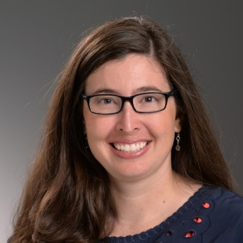
Kim McCormick, Ph.D.
Faculty Research AssociateKim McCormick, Ph.D.
Faculty Research AssociateKim McCormick, PhD, is a Faculty Research Associate who works with UEPC to use data to make continuous education improvements.
Kim knows the importance of the evaluation process and is driven to support stakeholders in not only collecting data that is aligned with the questions they are asking, but also to make meaning from the information that is gathered. In addition, she believes that a vital piece of the evaluation process is to take action based on what is learned from the data.
Kim began her career in education as an elementary classroom teacher in 2003 and had the opportunity to work at a STEM magnet school and an independent school for gifted and talented learners in Indianapolis, Indiana. She continued her work as an educator for seven years as an assistant professor at Salisbury University and Towson University in Maryland. Her work in higher education allowed her to partner with professional development schools to facilitate best practices in high ability education, assessment strategies to document student learning, ways to facilitate cognitive engagement in the classroom, and integrating STEM education with learners.
An ongoing theme of evaluation has been woven throughout Kim’s career. She has extensive experience in working with various stakeholders, leading district, state, and national projects, designing surveys, managing data collection, and sharing results in meaningful ways for clients. She has an upcoming article “Maryland Criteria for Excellence: A Model for Program Evaluation and Improvement” in Teaching for High Potential that highlights a model for practitioners to implement best practices for evaluating their school-wide gifted and talented programs.
Kim has both technology and gifted and talented education endorsements on her teaching license.
Kim holds a Ph.D. in Learning and Developmental sciences with a specialization in Education Philosophy and a minor in Counseling from Indiana University, an M.A. in Educational Psychology with a gifted and talented specialization from Ball State University, and a B.S. in Elementary Education from Butler University.
Kim is a member of the American Educational Research Association, the National Association for the Education of Young Children, the National Association for Gifted Children, and the National Association for Professional Development Schools.
Kim knows the importance of the evaluation process and is driven to support stakeholders in not only collecting data that is aligned with the questions they are asking, but also to make meaning from the information that is gathered. In addition, she believes that a vital piece of the evaluation process is to take action based on what is learned from the data.
Kim began her career in education as an elementary classroom teacher in 2003 and had the opportunity to work at a STEM magnet school and an independent school for gifted and talented learners in Indianapolis, Indiana. She continued her work as an educator for seven years as an assistant professor at Salisbury University and Towson University in Maryland. Her work in higher education allowed her to partner with professional development schools to facilitate best practices in high ability education, assessment strategies to document student learning, ways to facilitate cognitive engagement in the classroom, and integrating STEM education with learners.
An ongoing theme of evaluation has been woven throughout Kim’s career. She has extensive experience in working with various stakeholders, leading district, state, and national projects, designing surveys, managing data collection, and sharing results in meaningful ways for clients. She has an upcoming article “Maryland Criteria for Excellence: A Model for Program Evaluation and Improvement” in Teaching for High Potential that highlights a model for practitioners to implement best practices for evaluating their school-wide gifted and talented programs.
Kim has both technology and gifted and talented education endorsements on her teaching license.
Kim holds a Ph.D. in Learning and Developmental sciences with a specialization in Education Philosophy and a minor in Counseling from Indiana University, an M.A. in Educational Psychology with a gifted and talented specialization from Ball State University, and a B.S. in Elementary Education from Butler University.
Kim is a member of the American Educational Research Association, the National Association for the Education of Young Children, the National Association for Gifted Children, and the National Association for Professional Development Schools.
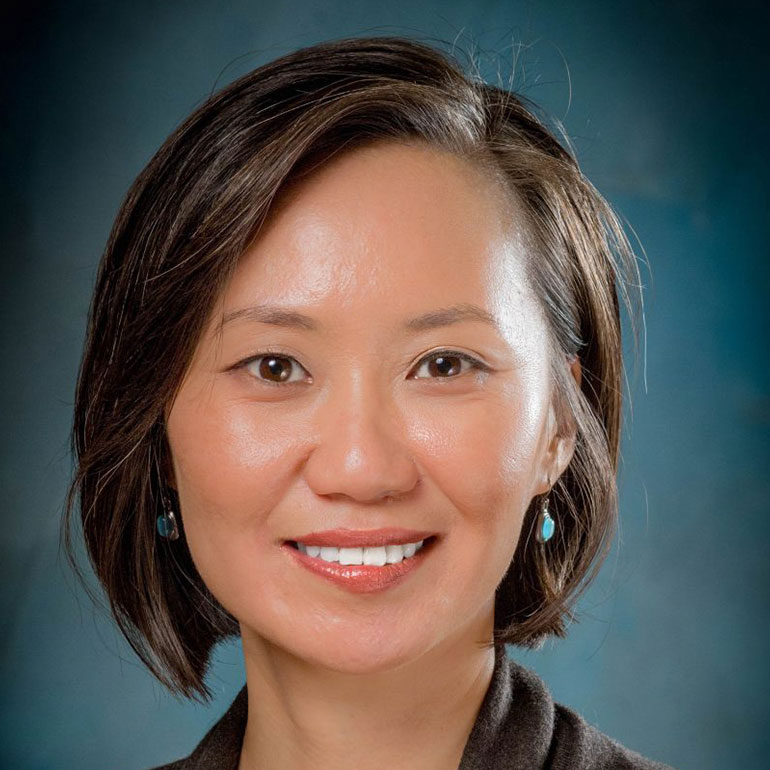
Vicki Park, Ph.D.
Visiting Research Scholar
Matt Pecsok, B.S.
Faculty Research AssociateMatt Pecsok, B.S.
Faculty Research AssociateMatthew Pecsok is a Faculty Research Associate who works with UEPC stakeholders to help them with data gathering, transformation, analysis, and process improvement/automation.
Matt believes that data driven decisions are a critical tool to help organizations improve their practices. Matt has extensive experience in Information Technology, and a strong background in mathematics/data analytics. He brings a passion for data and technical solutions to each project here at the UEPC.
Matt has supported multiple projects at UEPC in a variety of capacities such as data transformations, process automation, evaluation of statistical methods, and interpretation of results.
Matt has in previous roles built databases, websites, designed and automated reporting systems, maintained and designed Enterprise level software solutions, created analytics resources, built critical server infrastructure, and written many software solutions in a variety of languages. He is particularly proud of his work mentoring team members and clients on technical subjects.
Matt holds a B.S. in Mathematics from Westminster College.
Matt believes that data driven decisions are a critical tool to help organizations improve their practices. Matt has extensive experience in Information Technology, and a strong background in mathematics/data analytics. He brings a passion for data and technical solutions to each project here at the UEPC.
Matt has supported multiple projects at UEPC in a variety of capacities such as data transformations, process automation, evaluation of statistical methods, and interpretation of results.
Matt has in previous roles built databases, websites, designed and automated reporting systems, maintained and designed Enterprise level software solutions, created analytics resources, built critical server infrastructure, and written many software solutions in a variety of languages. He is particularly proud of his work mentoring team members and clients on technical subjects.
Matt holds a B.S. in Mathematics from Westminster College.
Laura Rogers, Ph.D.
Faculty Research AssociateLaura Rogers is an assistant professor in the Department of Educational Policy and Leadership and a faculty research associate at the UEPC. A former elementary school teacher, Laura became an education researcher after realizing how much of her work in the classroom was constrained by policies and systems beyond her control.
Laura’s current research focuses on studying the implementation and effects of policies aimed at improving the quality of the education workforce (e.g., district administrators, school leaders, and teachers). To this end, she uses both quantitative and qualitative (mixed) methods; she is also particularly interested in survey methods, having spent a large portion of her career grappling with issues of survey design, validation, and analysis. Recent projects have included evaluations of national initiatives focused on principal supervisors and district principal pipeline learning communities. With the UEPC, she is presently engaged in an ongoing study of Utah educators’ wellbeing and retention. This latter project has proved to be a meaningful reminder of the resiliency and dedication of Utah teachers. Laura appreciates working with the collaborative and creative UEPC team as a faculty associate.
Laura holds a PhD in K-12 Education Policy from Vanderbilt University, where she was a Dean’s Fellow and a recipient of a Bonsal Applied Education Research Award. She is a member and regular presenter at several research communities, including AEFP, AERA, APPAM, and UCEA.
laura.rogers@utah.eduLaura’s current research focuses on studying the implementation and effects of policies aimed at improving the quality of the education workforce (e.g., district administrators, school leaders, and teachers). To this end, she uses both quantitative and qualitative (mixed) methods; she is also particularly interested in survey methods, having spent a large portion of her career grappling with issues of survey design, validation, and analysis. Recent projects have included evaluations of national initiatives focused on principal supervisors and district principal pipeline learning communities. With the UEPC, she is presently engaged in an ongoing study of Utah educators’ wellbeing and retention. This latter project has proved to be a meaningful reminder of the resiliency and dedication of Utah teachers. Laura appreciates working with the collaborative and creative UEPC team as a faculty associate.
Laura holds a PhD in K-12 Education Policy from Vanderbilt University, where she was a Dean’s Fellow and a recipient of a Bonsal Applied Education Research Award. She is a member and regular presenter at several research communities, including AEFP, AERA, APPAM, and UCEA.
Sondra Stegenga, Ph.D.
Faculty Research AssociateSondra Stegenga is an Assistant Professor in the Special Education Department, a faculty research associate in the Utah Education Policy Center (UEPC), and an associate faculty member in the Infant Mental Health Program - Department of Psychology.
Prior to becoming a researcher and faculty member at the University of Utah, Sondra worked as an educational provider (occupational therapist) and program administrator in health and educational systems for over 15 years including hospitals, charter schools, and Part C early intervention (birth to three) home visiting programs supporting infants and toddlers with disabilities and their families. It is this prior work and community-based experience that drive her passion for research. Sondra aims to partner with families, educational providers (e.g., occupational therapists, developmental specialists, teachers), and leaders in early childhood and eduational systems to identify and solve real-world pressing issues in education and early learning.
Sondra’s current research and projects focus on leader impacts on the implementation of evidence-based practices and policies in Part C early intervention (birth to three), early social emotional development and infant mental health interventions for young children with disabilities and their families, identification of practices and strategies that foster interdisciplinary and interagency collaboration in complex early childhood community-based settings, policies and use of social media in educational systems, and the use of data science and mixed methods in special education and early intervention research including examining meta-science issues such as ethics and critical inquiry. This research includes actively working with an international workgroup focused on open science practices relevant to mixed methods and qualitative research as well as collaborating within university (across University of Utah Departments) and across univeristies and states to improve preservice training and dissemination/translation of research findings. Sondra recently had one of her translational practice-based articles, “Engaging in Policy through Advocacy”, highlighted in Young Exceptional Children as a featured ‘Article to Action’.
Sondra holds a Ph.D. in Special Education the University of Oregon, a Master of Education in Educational Leadership including credentials in Special Education Administration and Principal Leadership, a Master of Science in Occupational Therapy, and a Bachelor of Science in Behavioral Science from Grand Valley State University. Sondra is an active member and presenter at multiple professional communities due to her interdisciplinary research including: the American Educational Research Association, Council for Exceptional Children – Division for Early Childhood, American Occupational Therapy Association, and the Global Implementation Society. Sondra also currently serves on state appointed committees in Utah focused on improving systems and educational supports for young children with disabilities and their families in Utah including the BabyWatch Utah State Interagency Coordinating Council for Infants and Toddlers with Disabilities as well as Early Childhood Utah’s Early Childhood Education Sub-Committee.
sondra.stegenga@utah.eduPrior to becoming a researcher and faculty member at the University of Utah, Sondra worked as an educational provider (occupational therapist) and program administrator in health and educational systems for over 15 years including hospitals, charter schools, and Part C early intervention (birth to three) home visiting programs supporting infants and toddlers with disabilities and their families. It is this prior work and community-based experience that drive her passion for research. Sondra aims to partner with families, educational providers (e.g., occupational therapists, developmental specialists, teachers), and leaders in early childhood and eduational systems to identify and solve real-world pressing issues in education and early learning.
Sondra’s current research and projects focus on leader impacts on the implementation of evidence-based practices and policies in Part C early intervention (birth to three), early social emotional development and infant mental health interventions for young children with disabilities and their families, identification of practices and strategies that foster interdisciplinary and interagency collaboration in complex early childhood community-based settings, policies and use of social media in educational systems, and the use of data science and mixed methods in special education and early intervention research including examining meta-science issues such as ethics and critical inquiry. This research includes actively working with an international workgroup focused on open science practices relevant to mixed methods and qualitative research as well as collaborating within university (across University of Utah Departments) and across univeristies and states to improve preservice training and dissemination/translation of research findings. Sondra recently had one of her translational practice-based articles, “Engaging in Policy through Advocacy”, highlighted in Young Exceptional Children as a featured ‘Article to Action’.
Sondra holds a Ph.D. in Special Education the University of Oregon, a Master of Education in Educational Leadership including credentials in Special Education Administration and Principal Leadership, a Master of Science in Occupational Therapy, and a Bachelor of Science in Behavioral Science from Grand Valley State University. Sondra is an active member and presenter at multiple professional communities due to her interdisciplinary research including: the American Educational Research Association, Council for Exceptional Children – Division for Early Childhood, American Occupational Therapy Association, and the Global Implementation Society. Sondra also currently serves on state appointed committees in Utah focused on improving systems and educational supports for young children with disabilities and their families in Utah including the BabyWatch Utah State Interagency Coordinating Council for Infants and Toddlers with Disabilities as well as Early Childhood Utah’s Early Childhood Education Sub-Committee.


